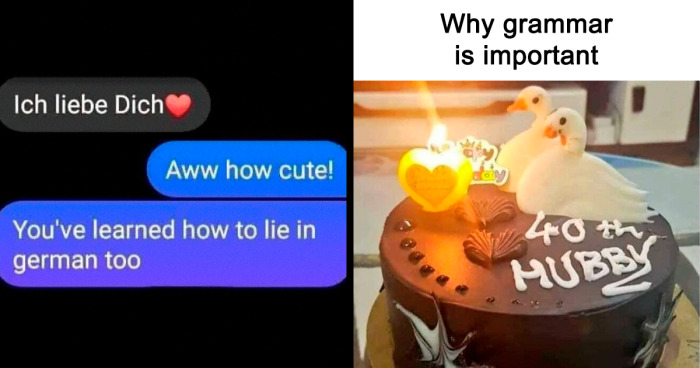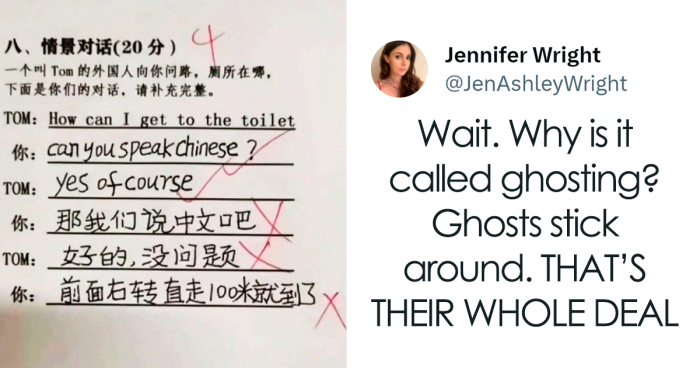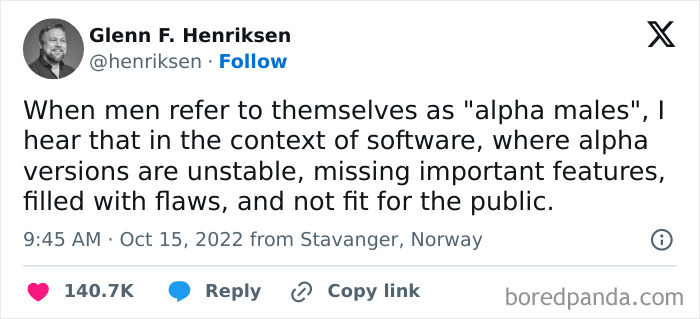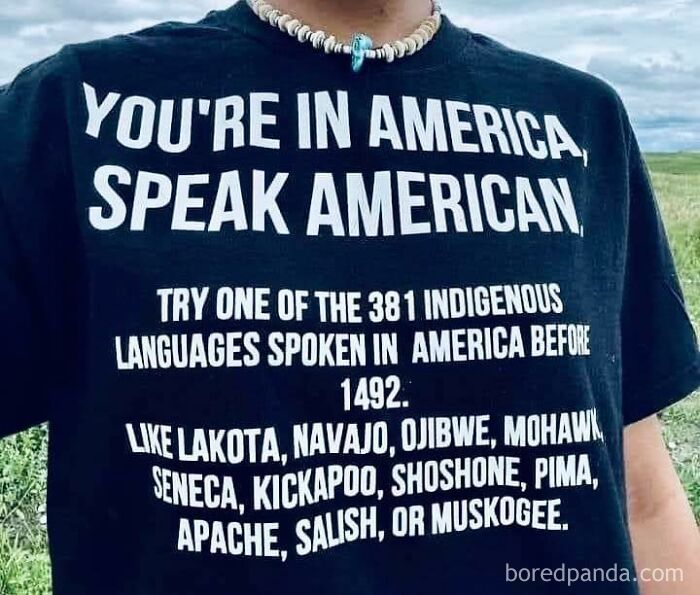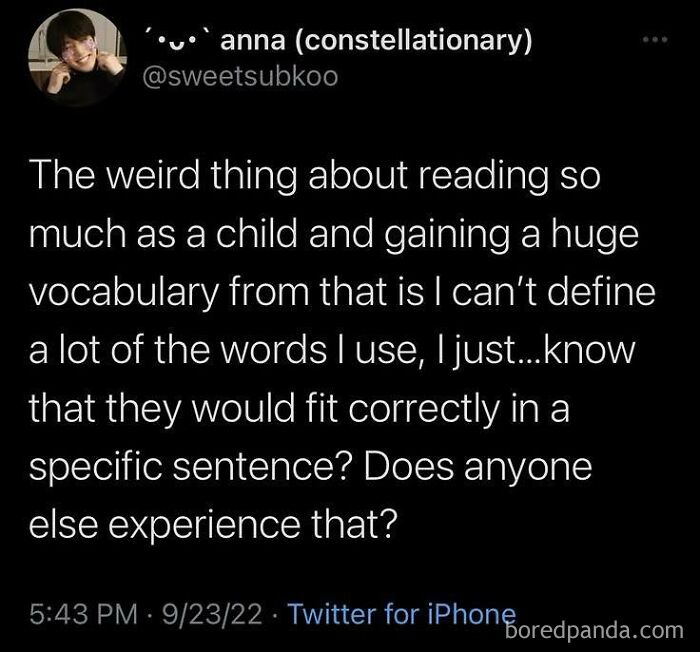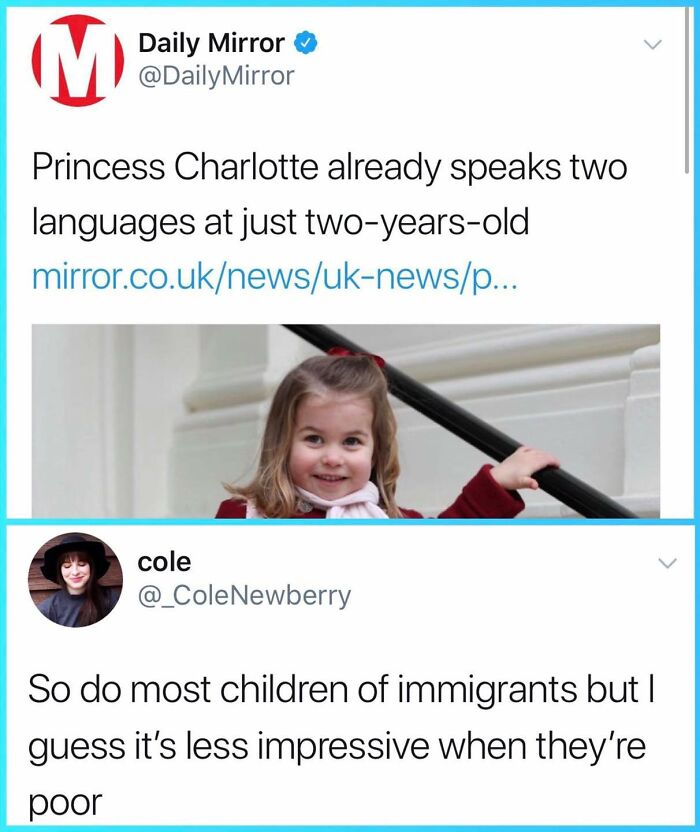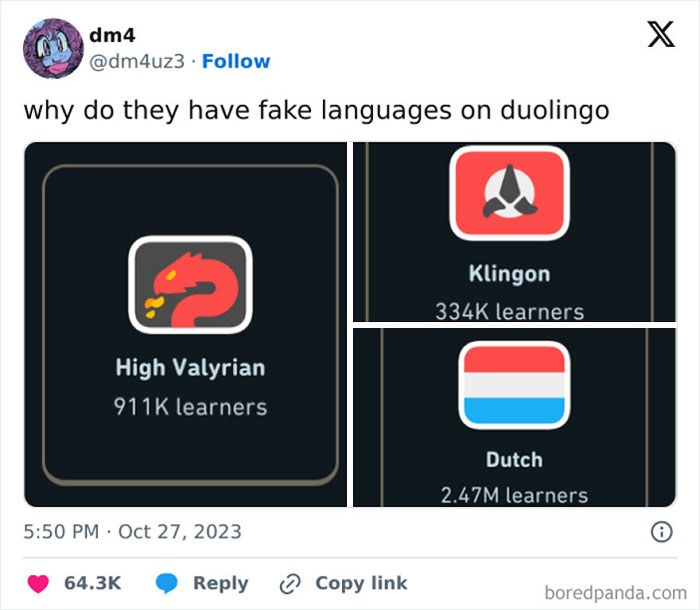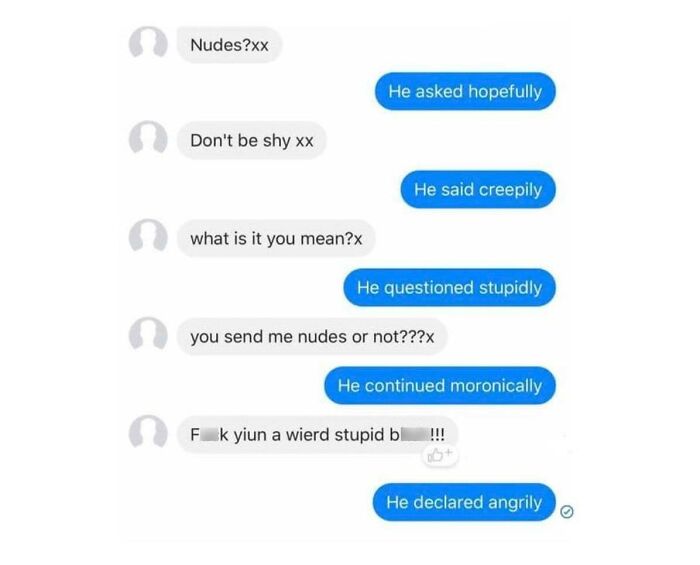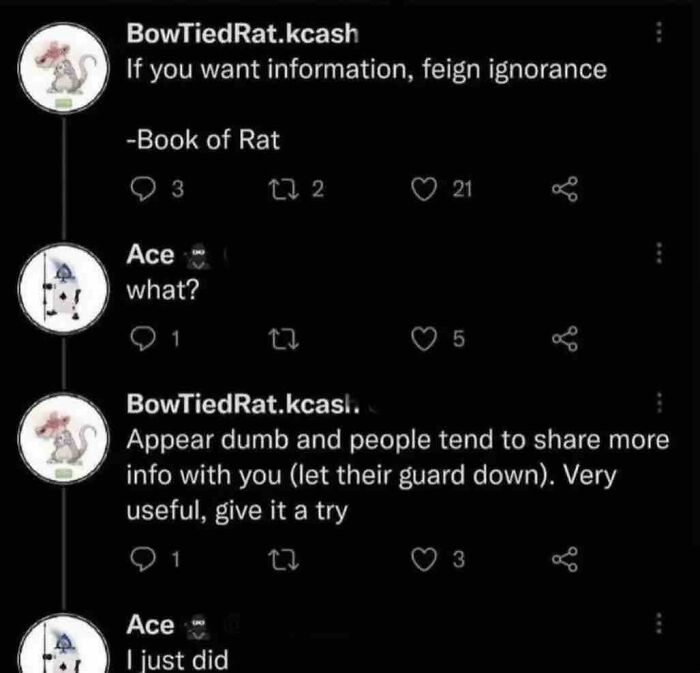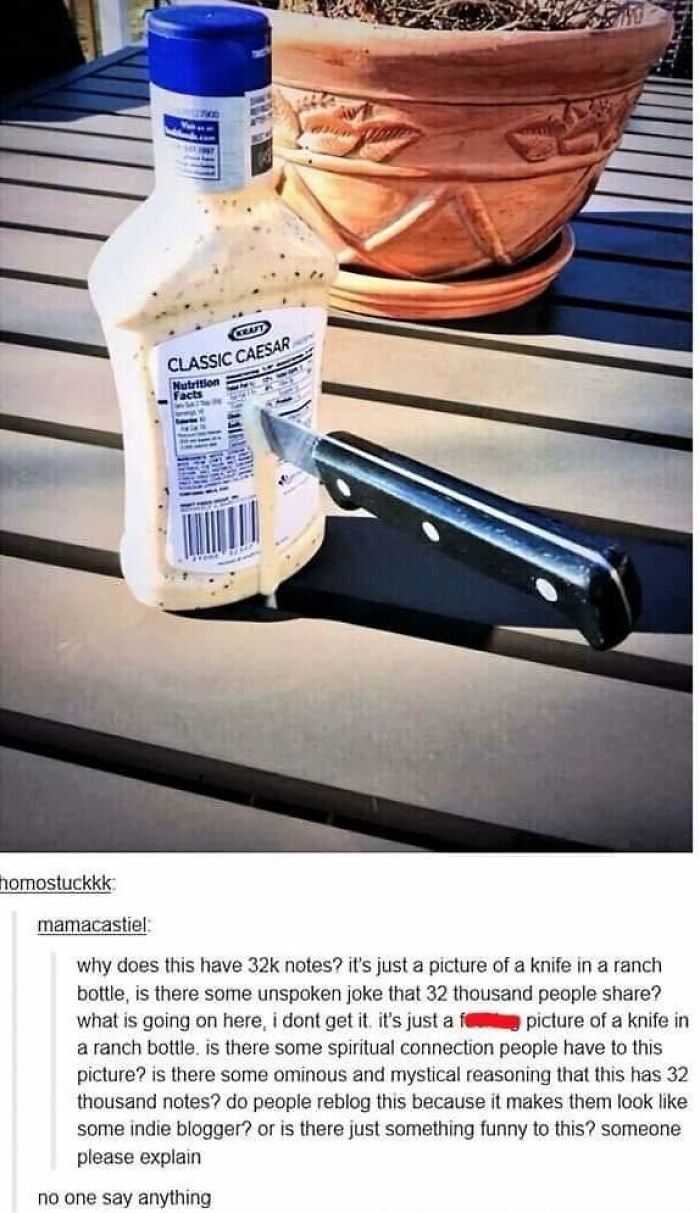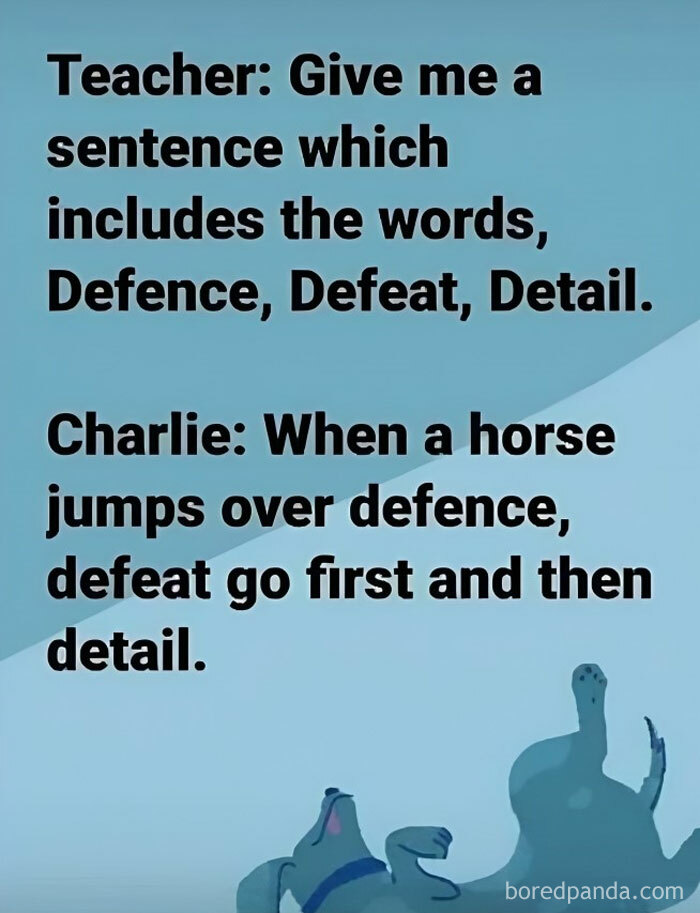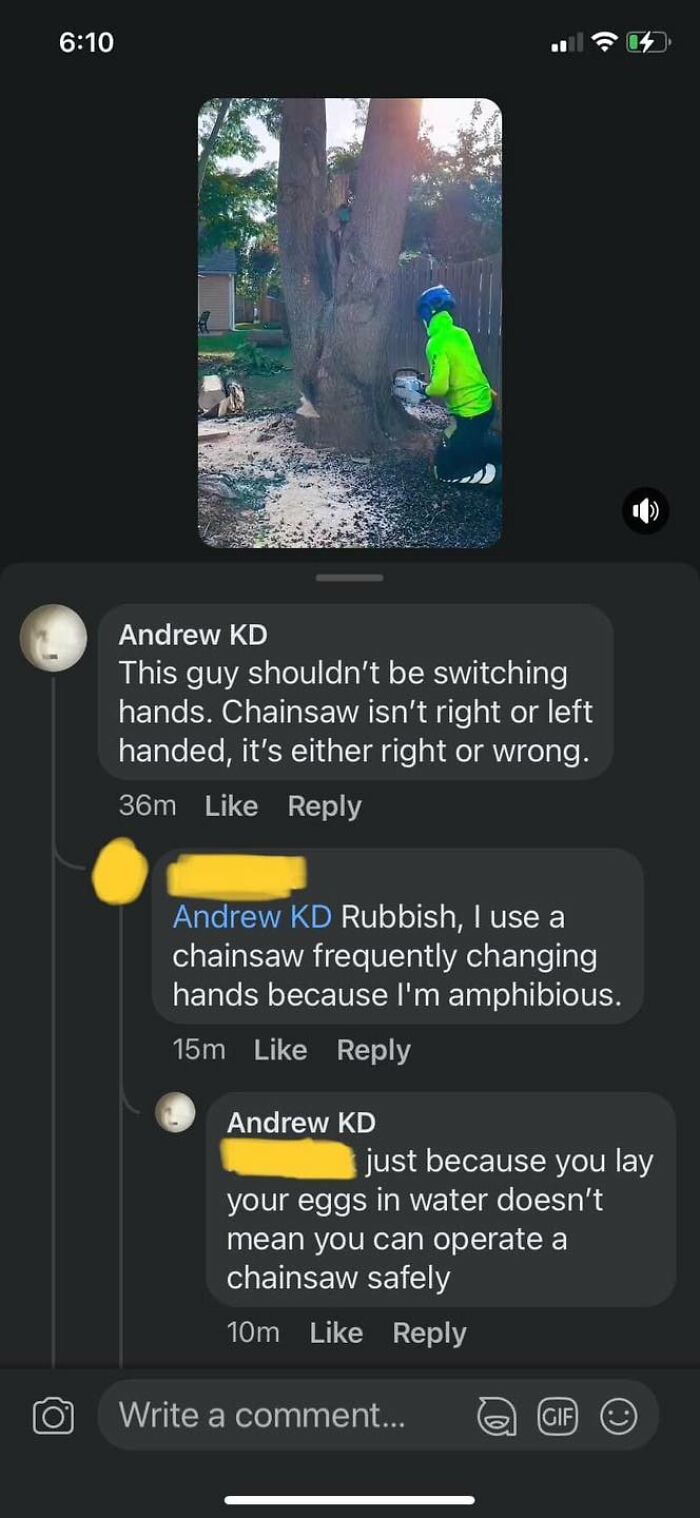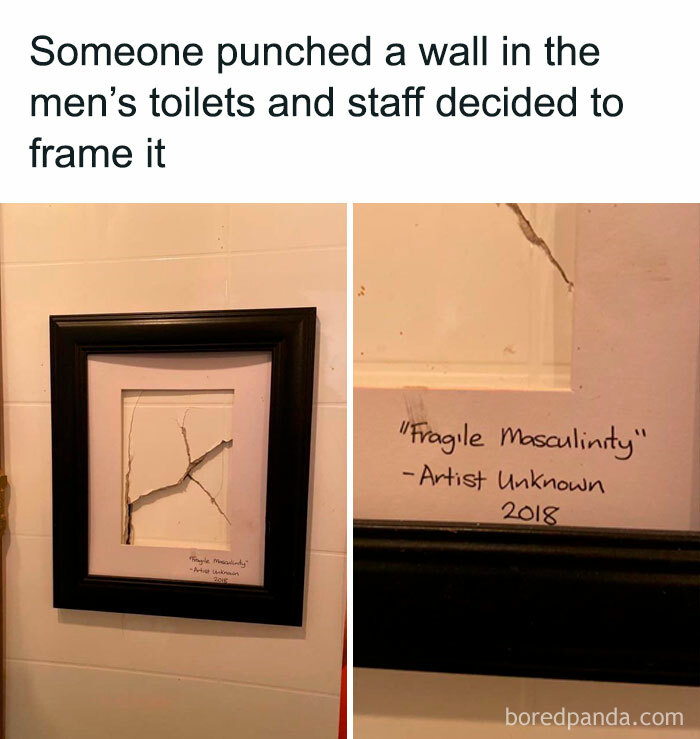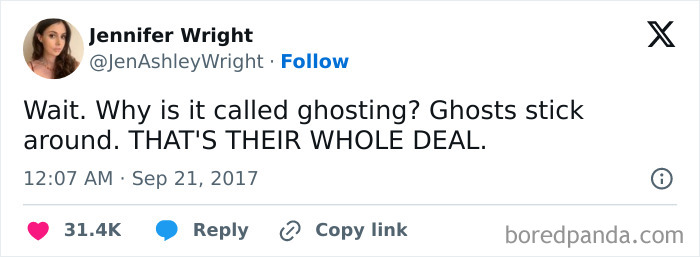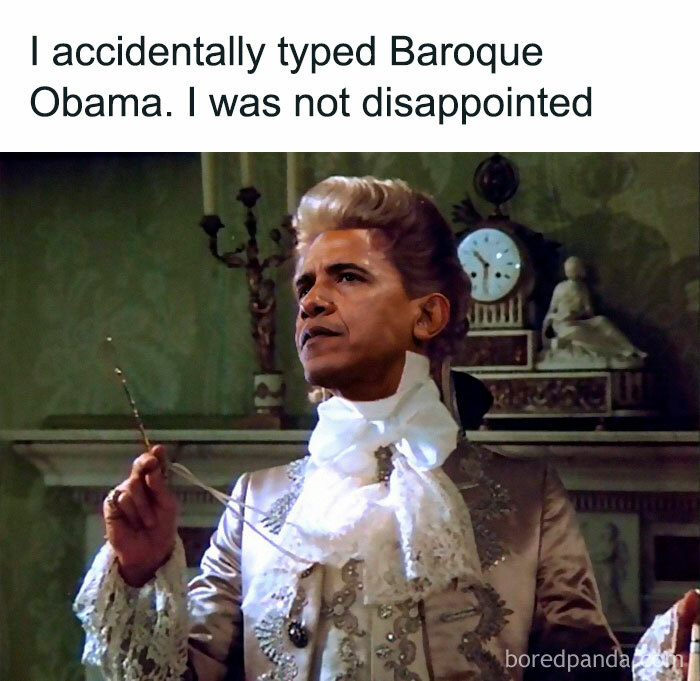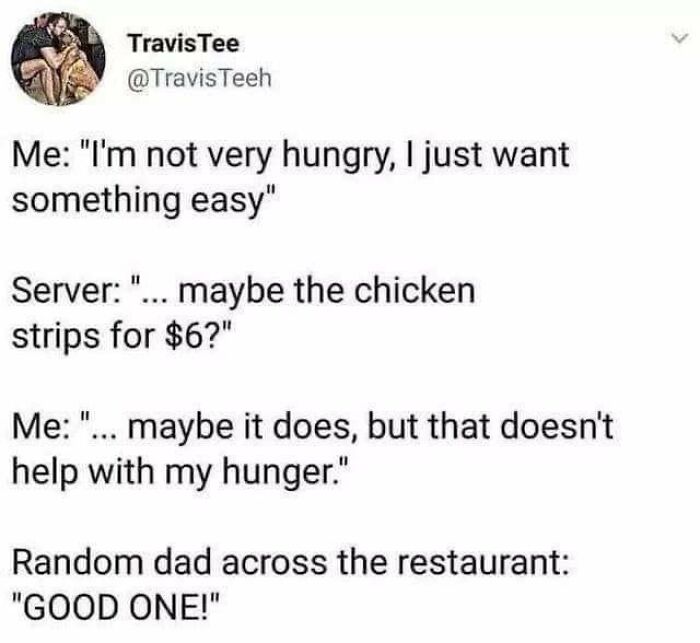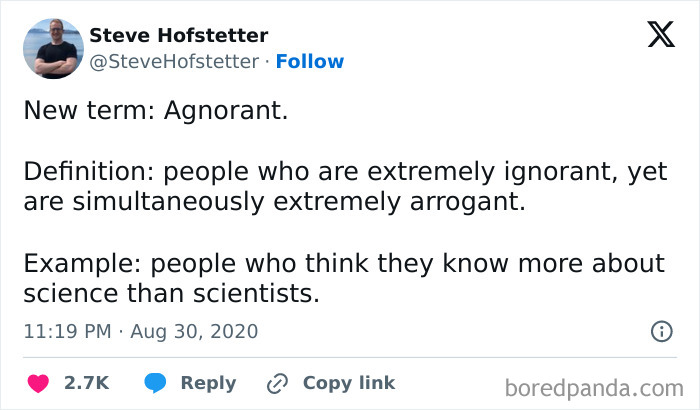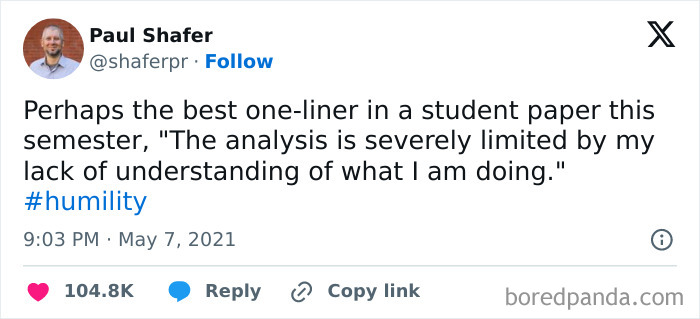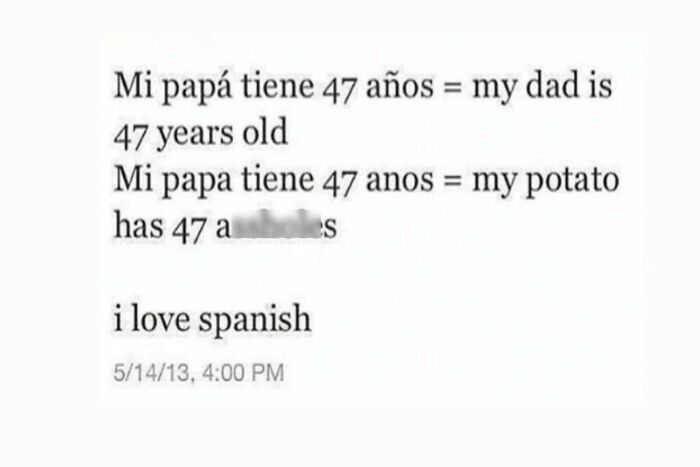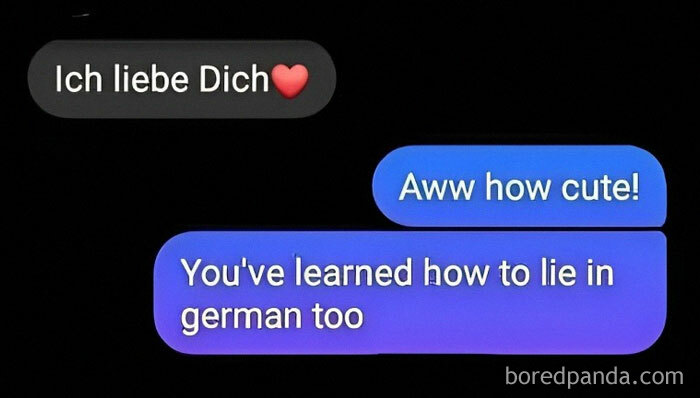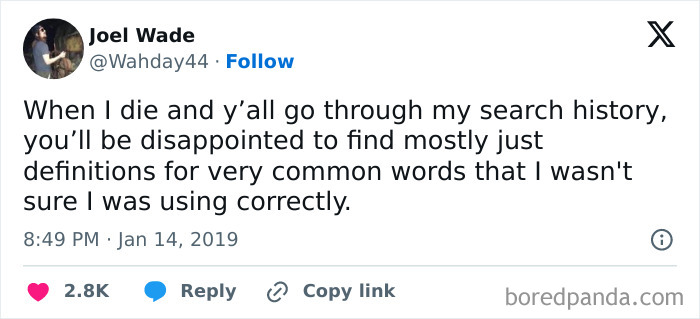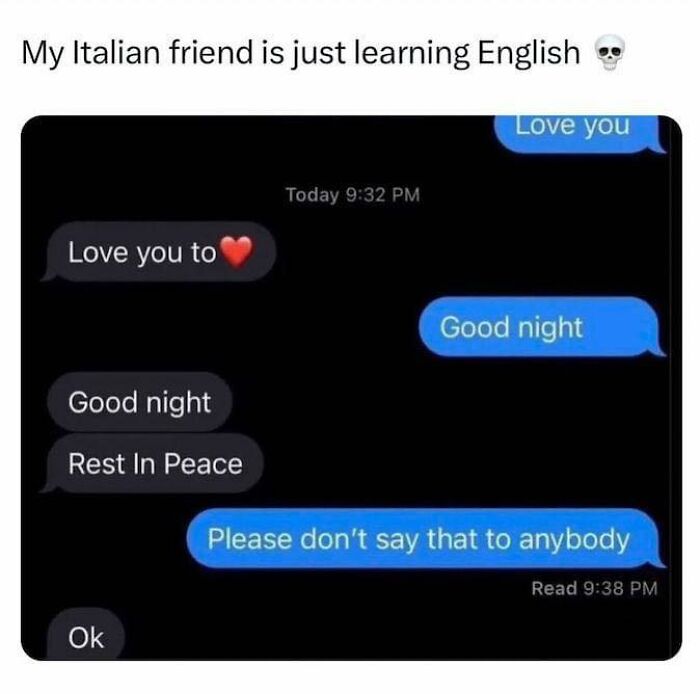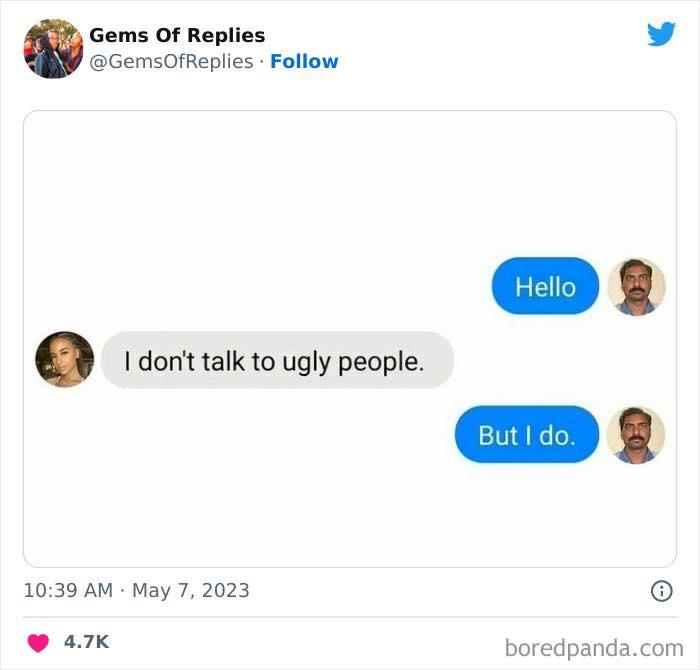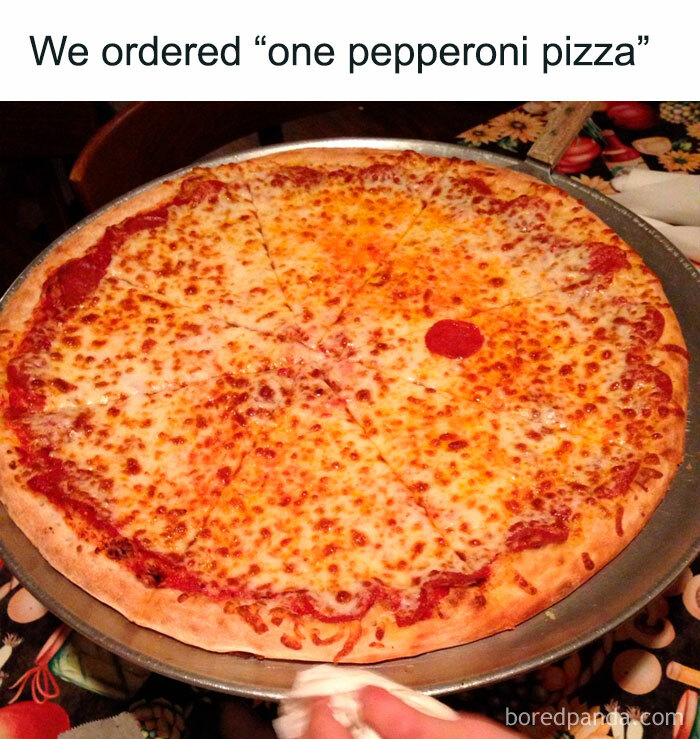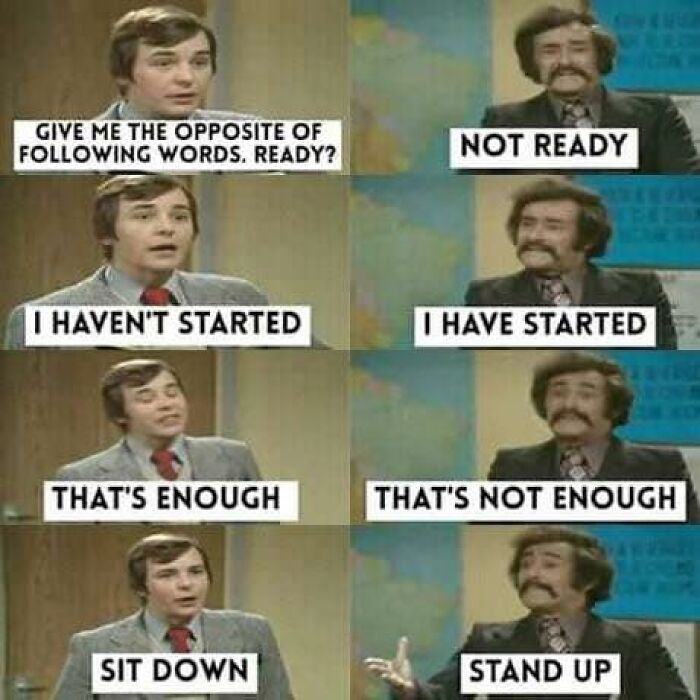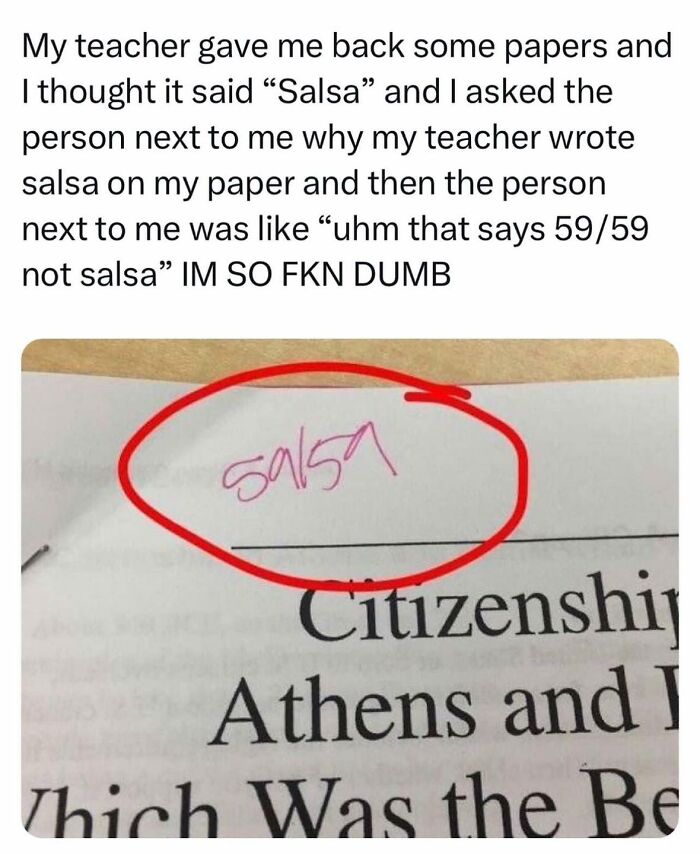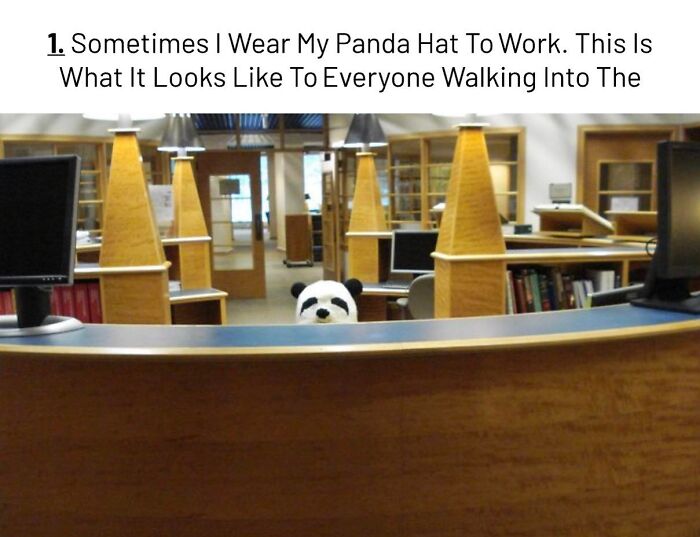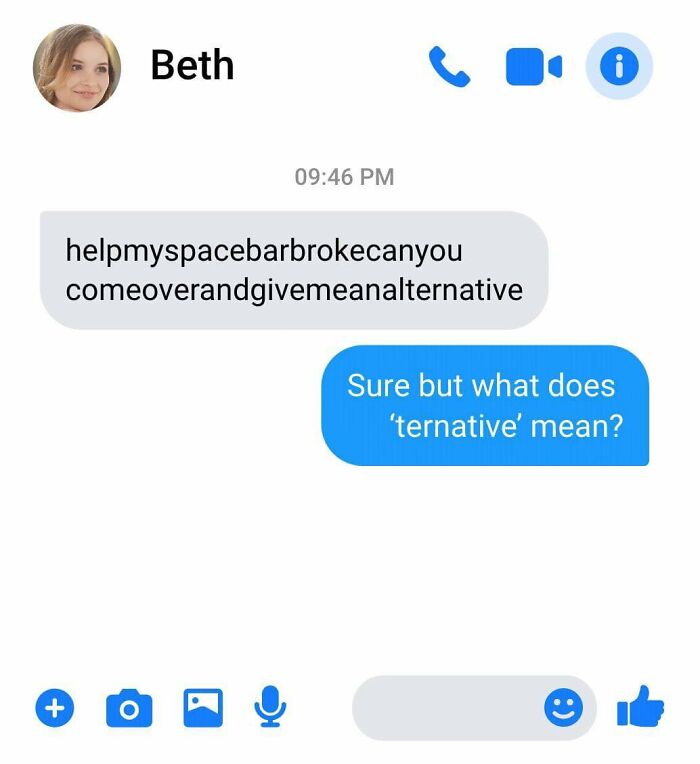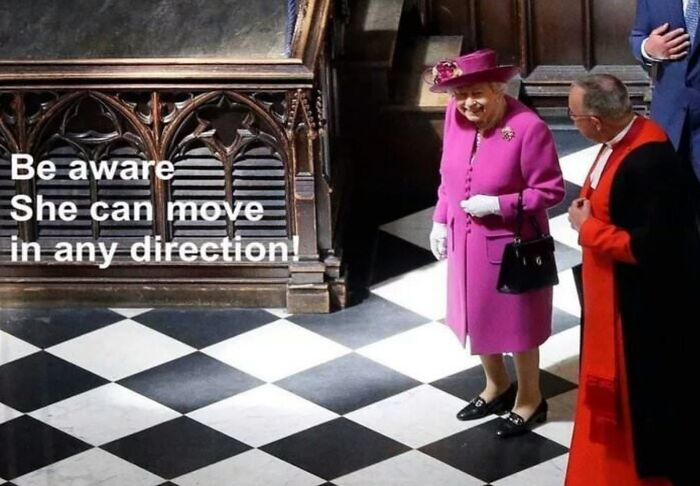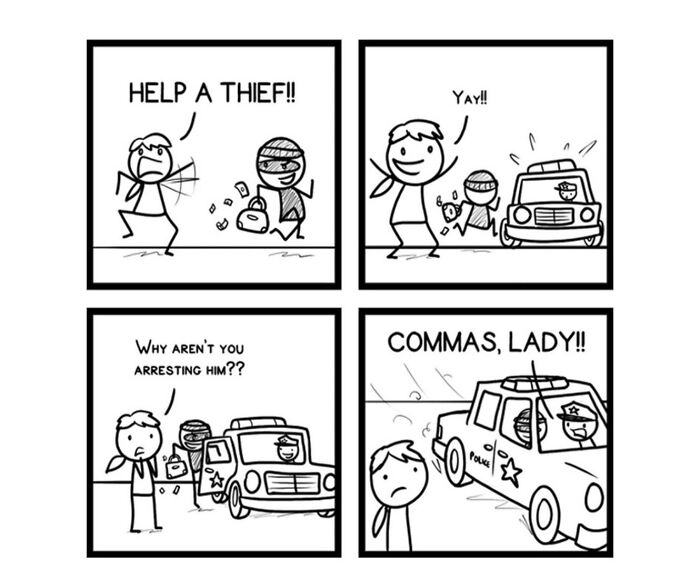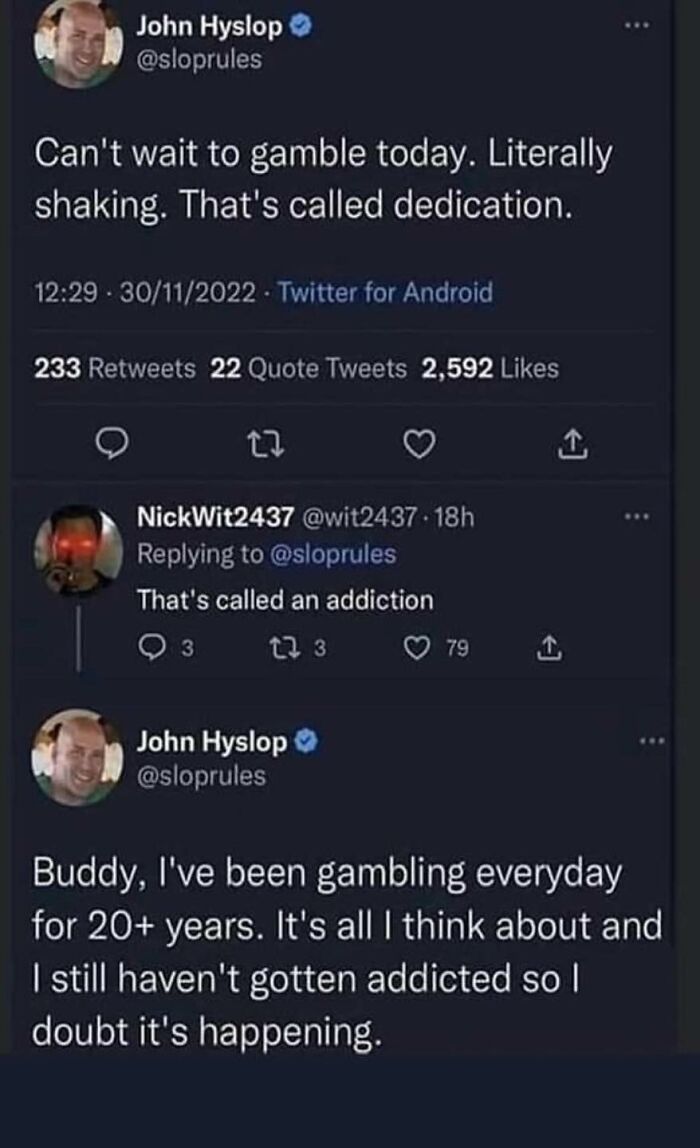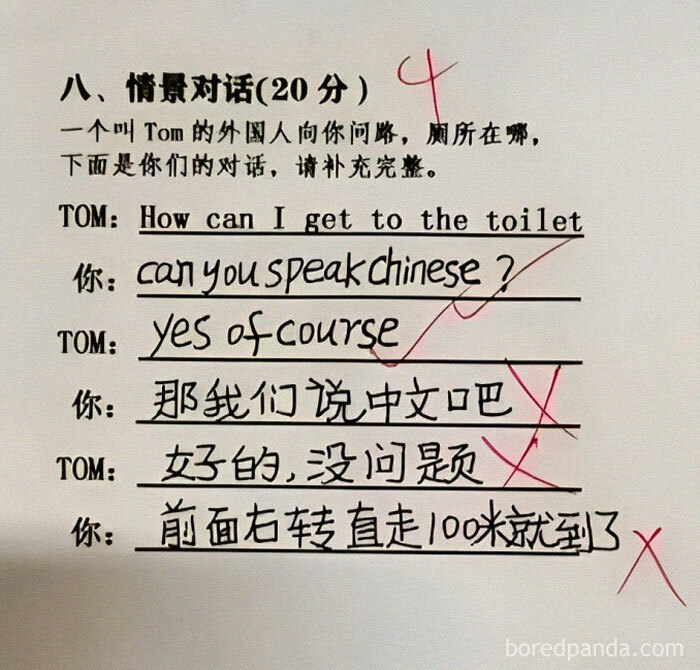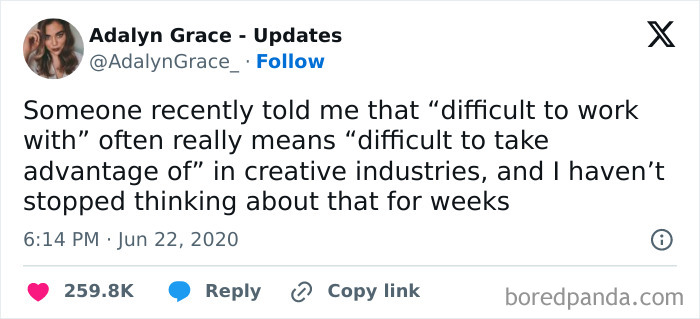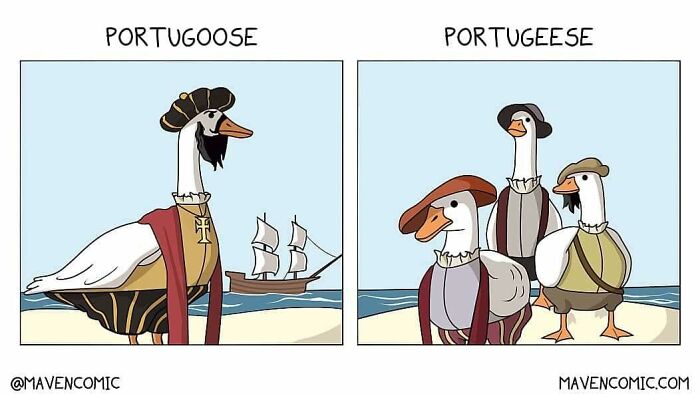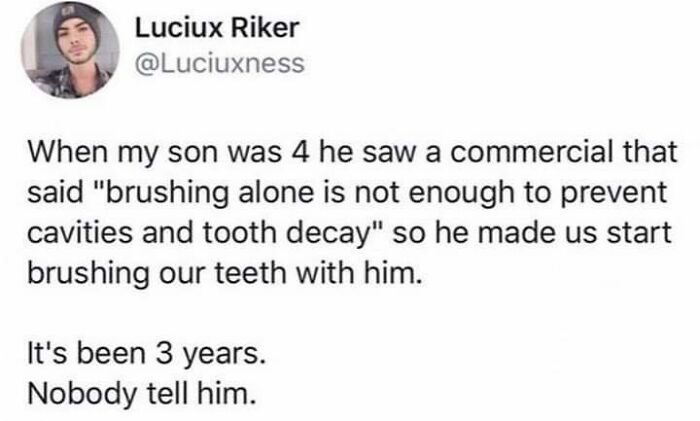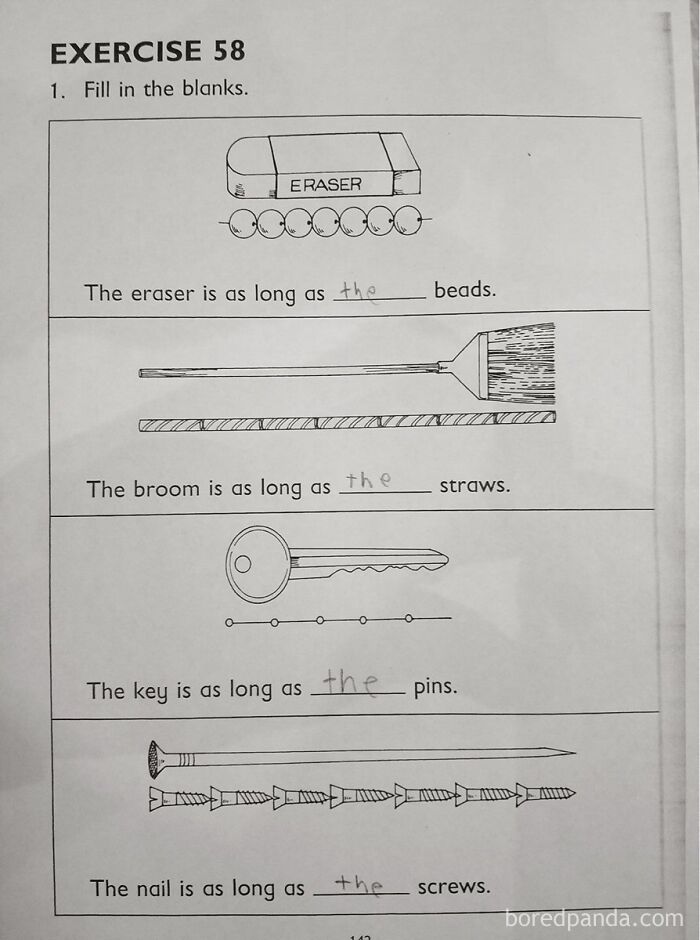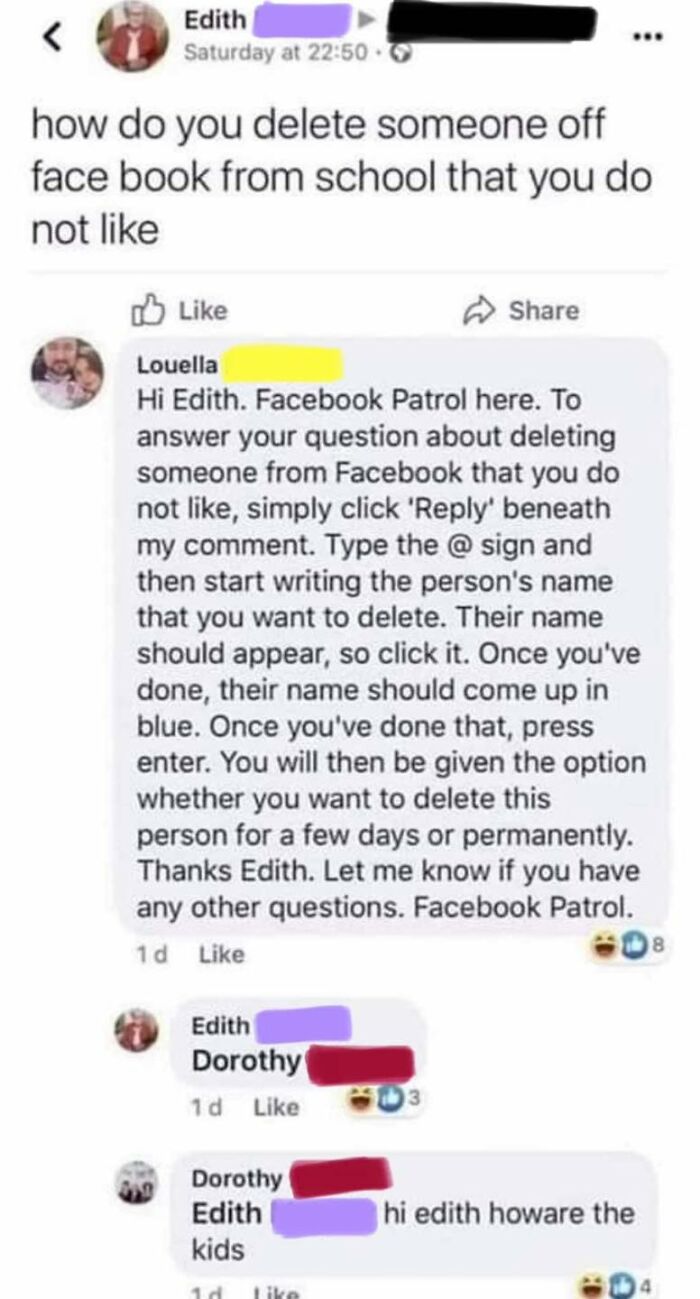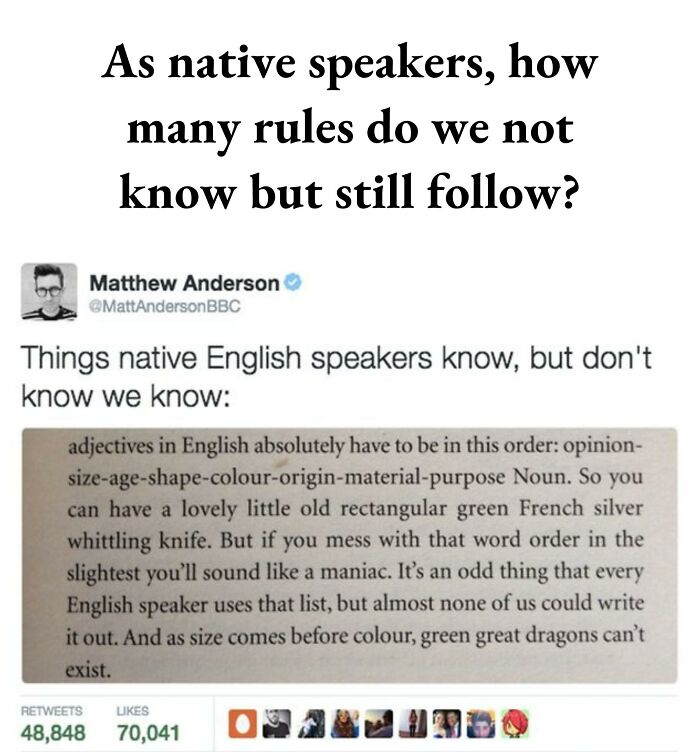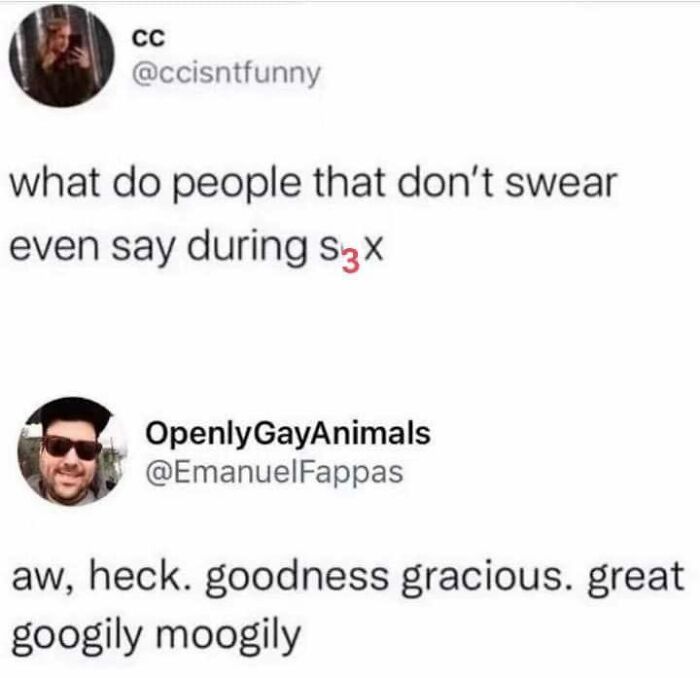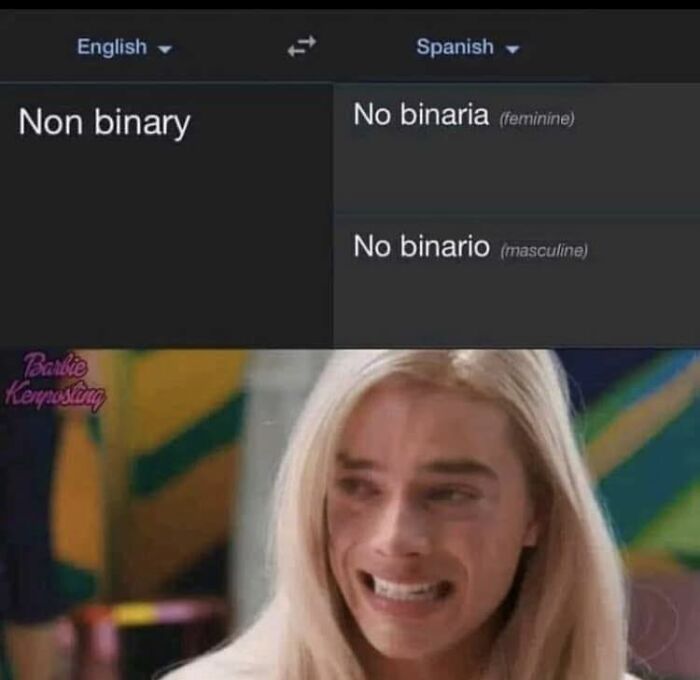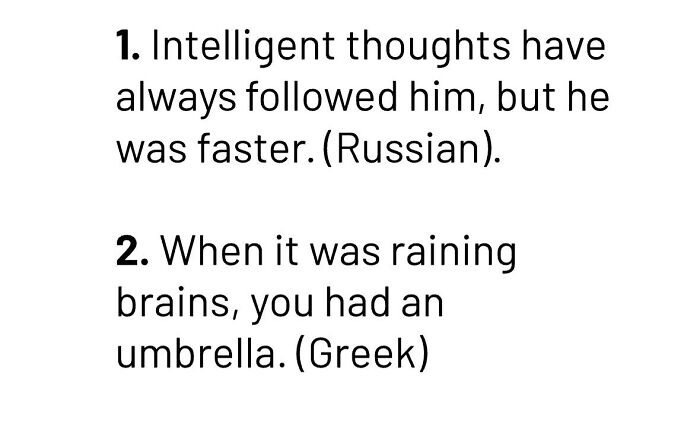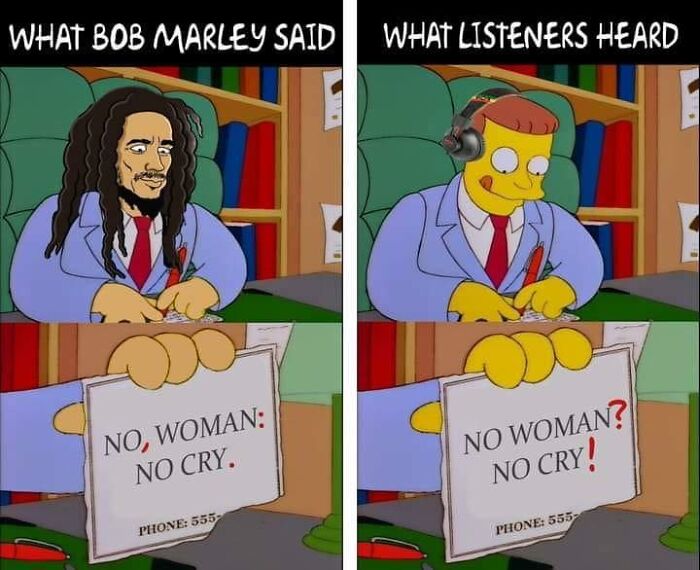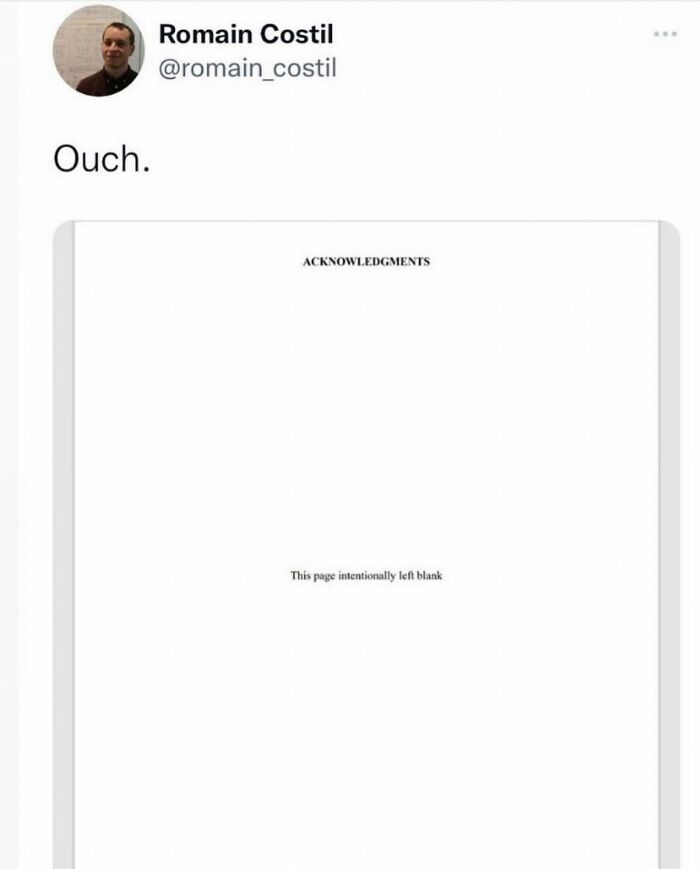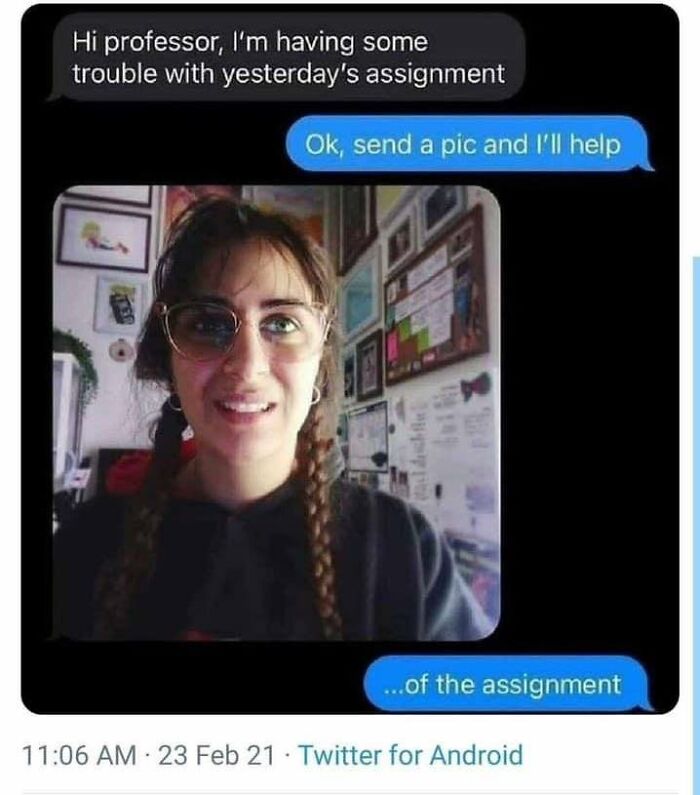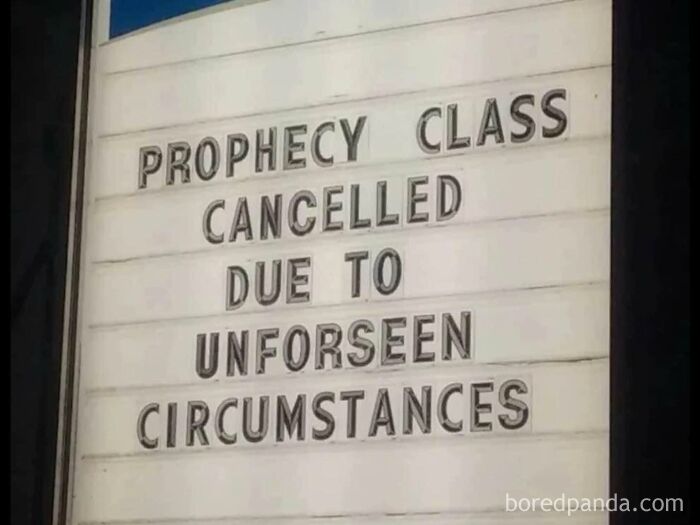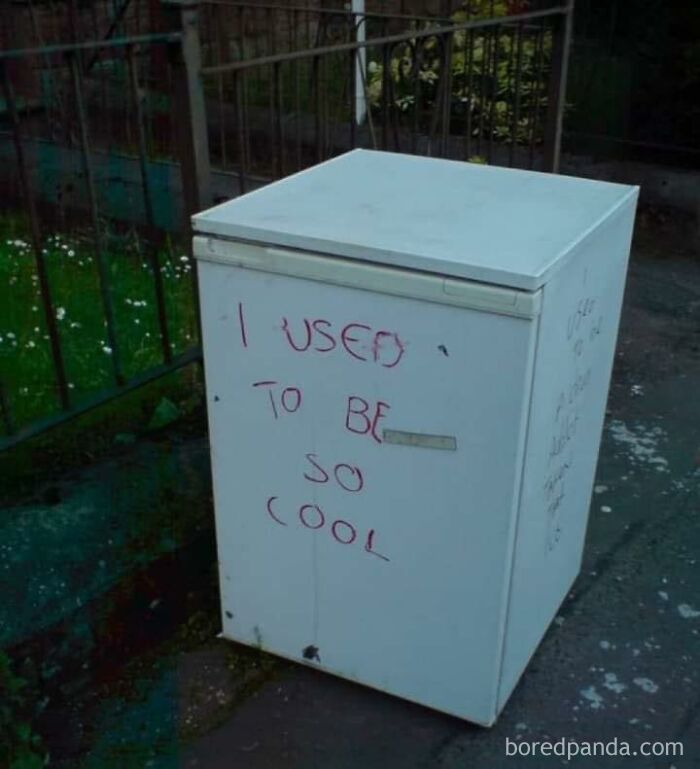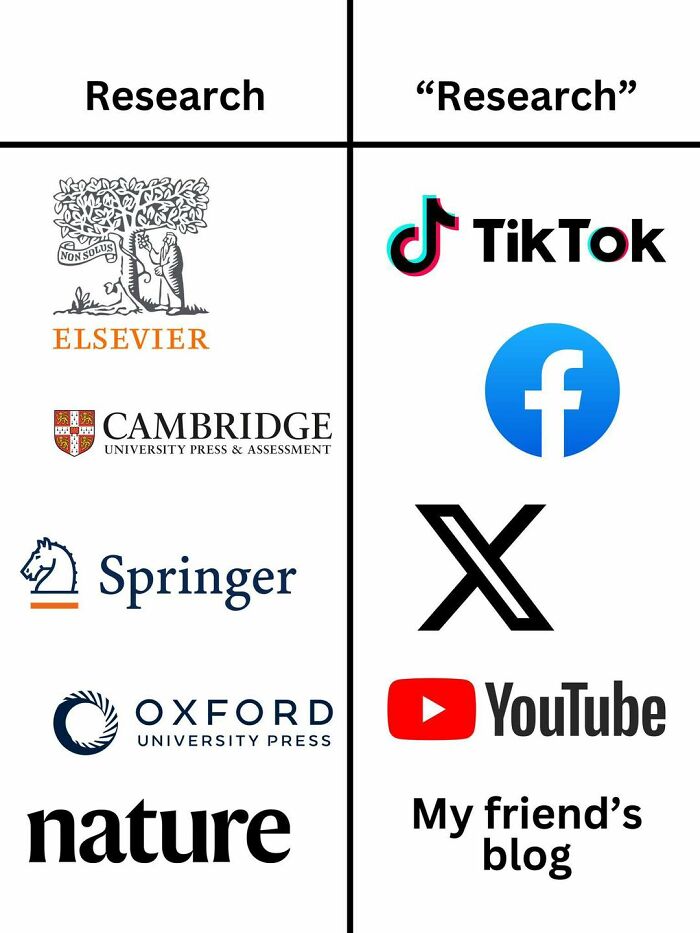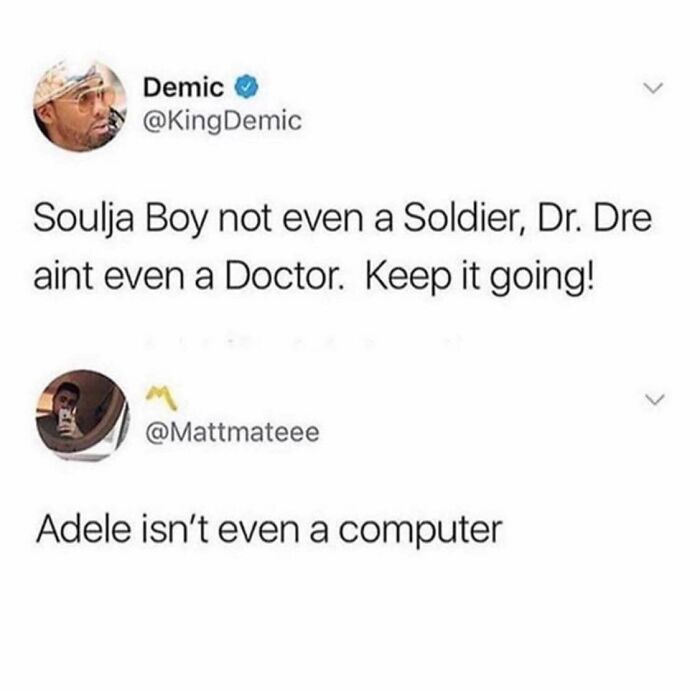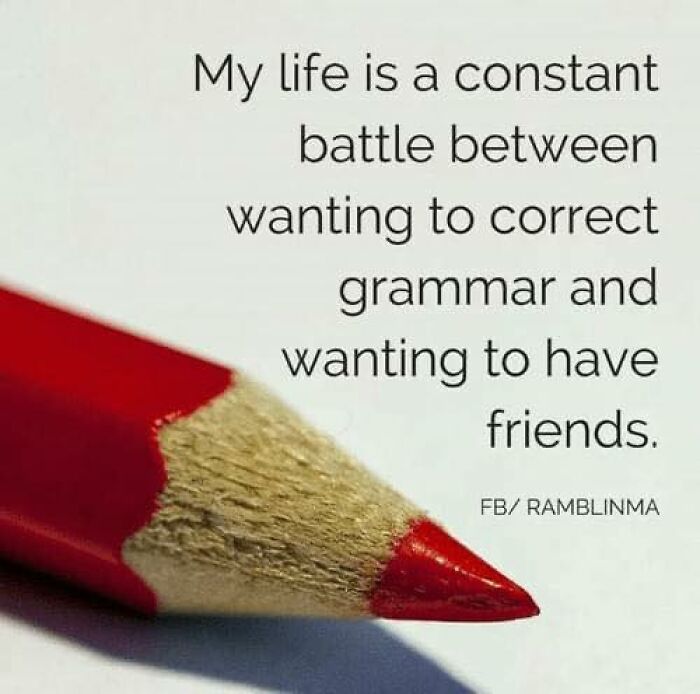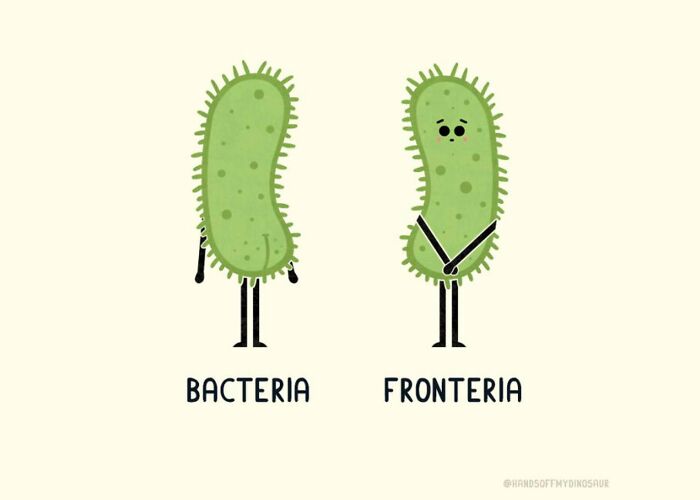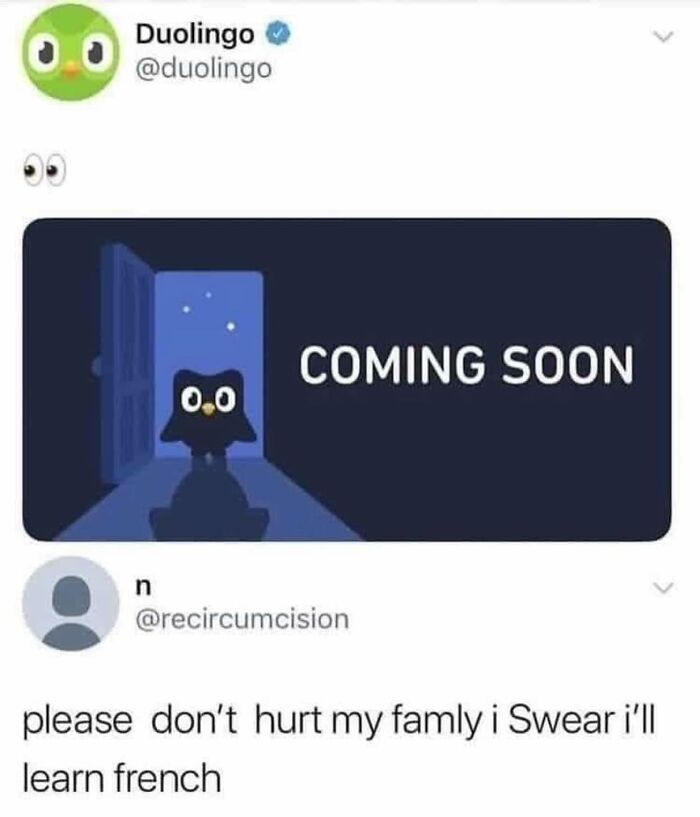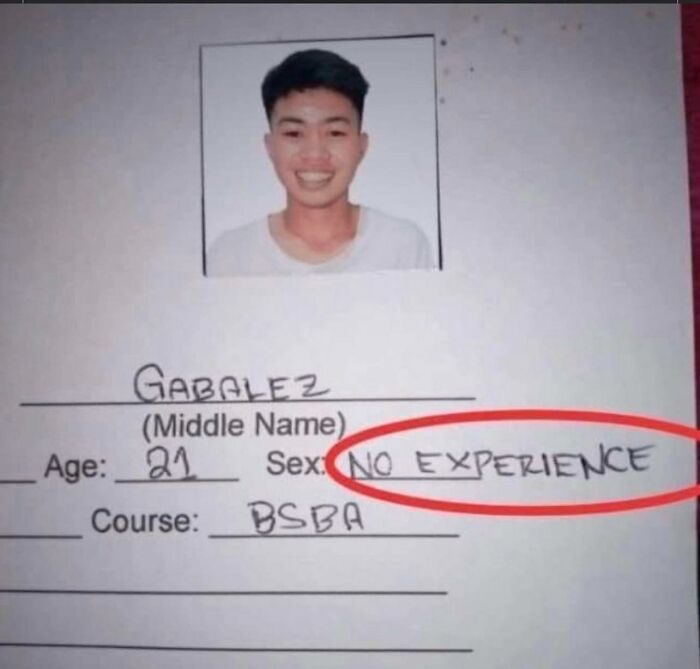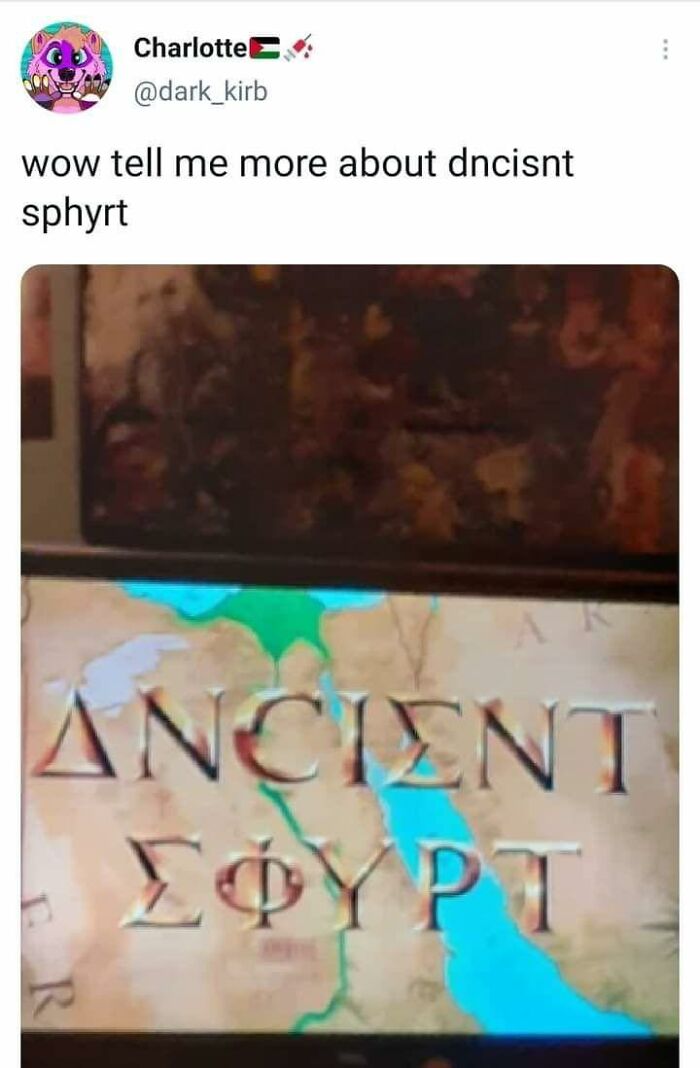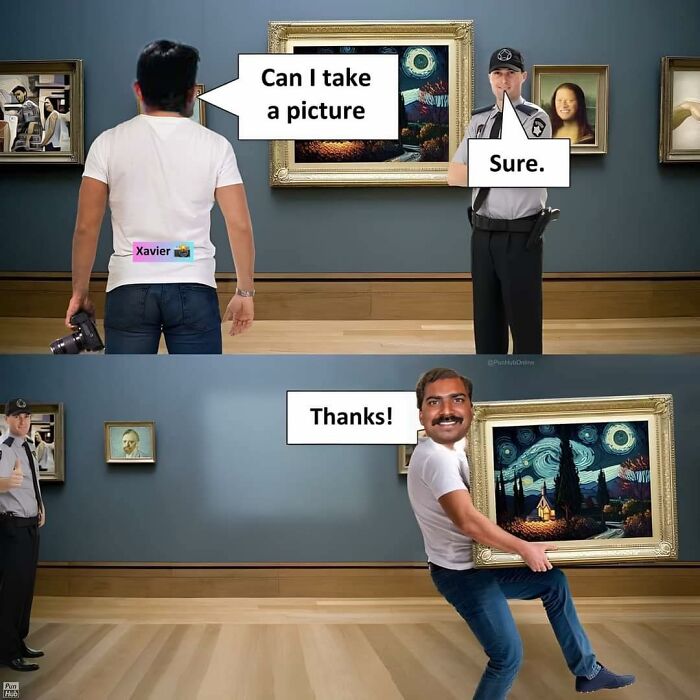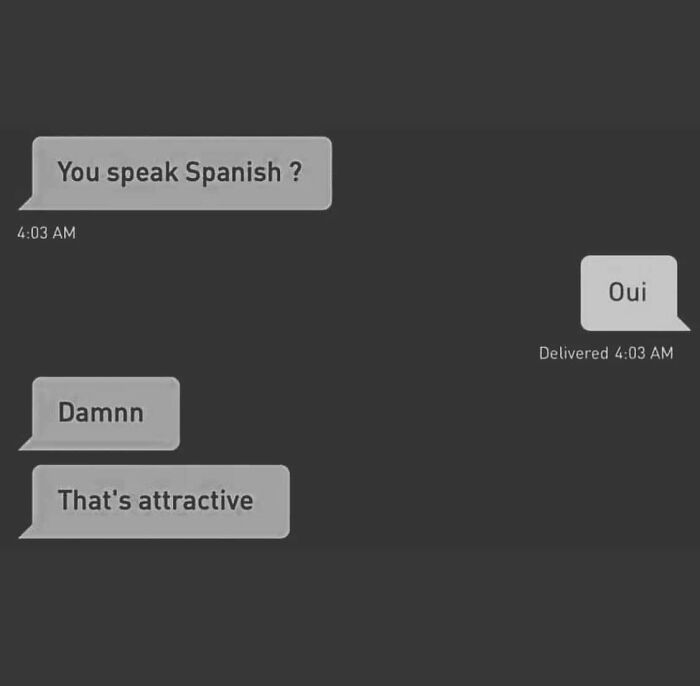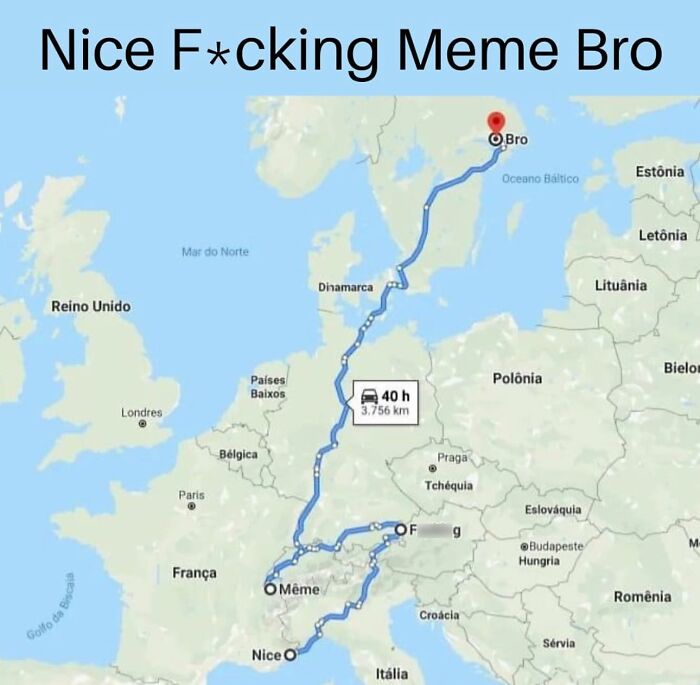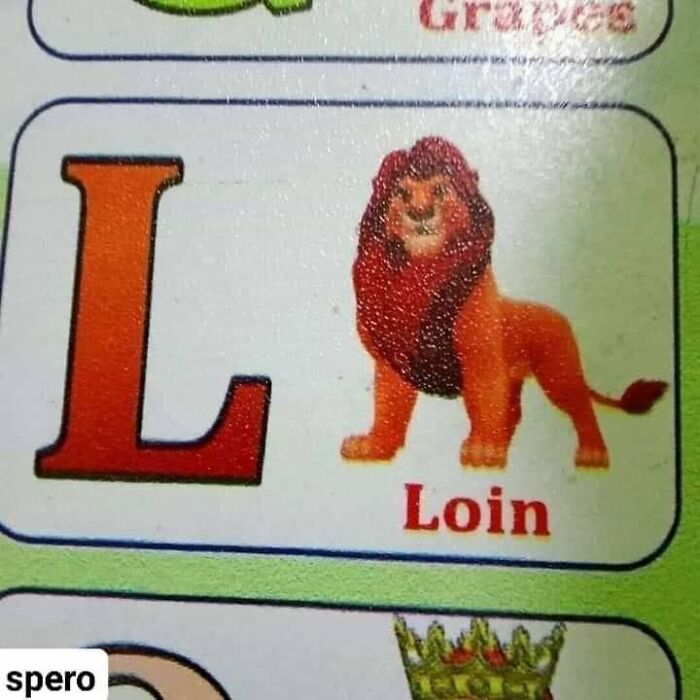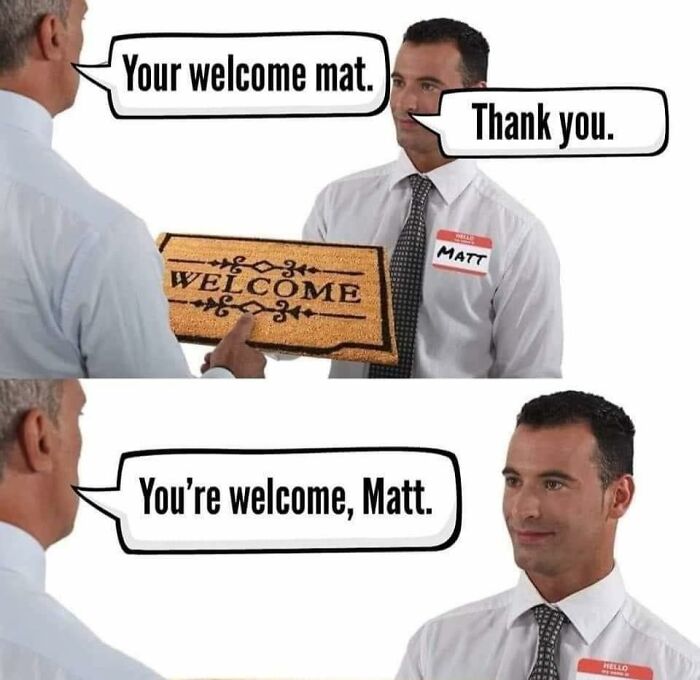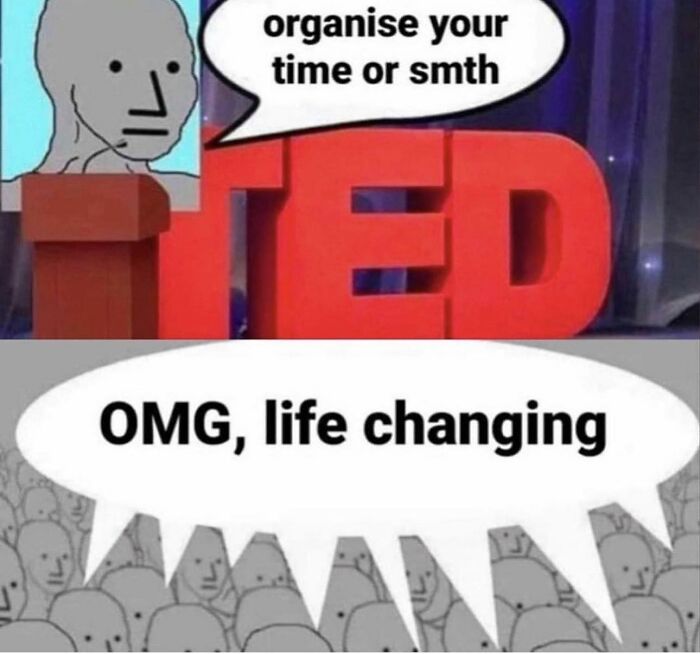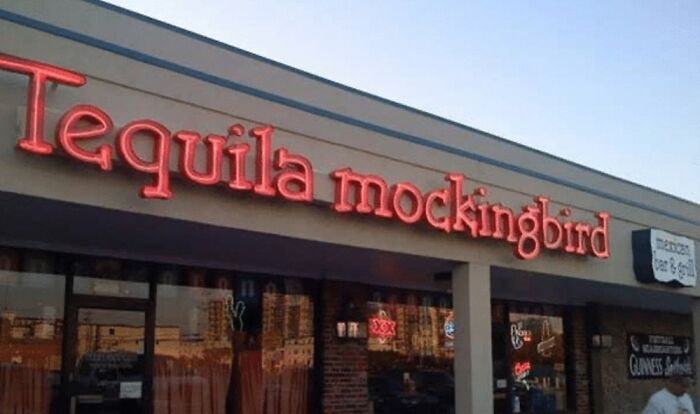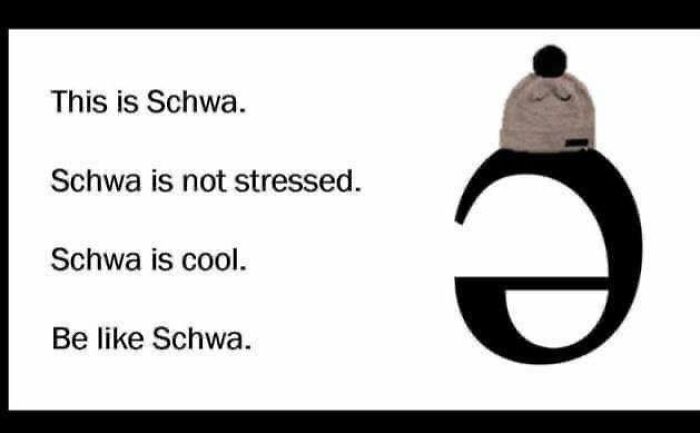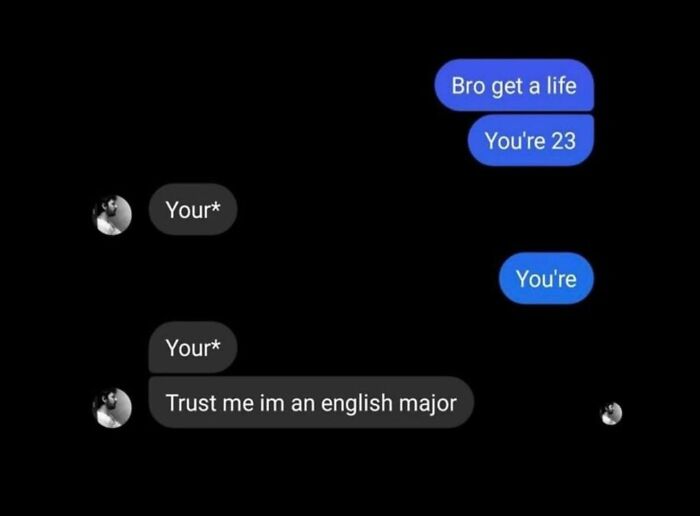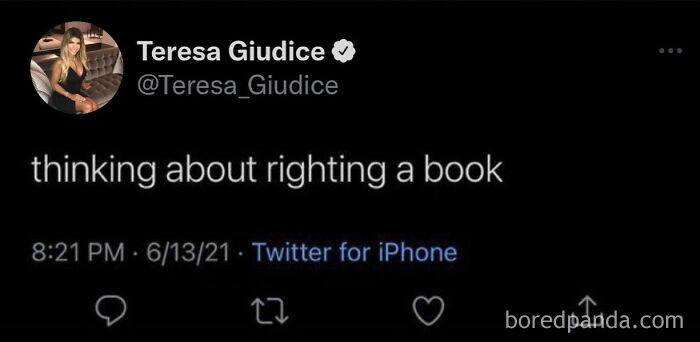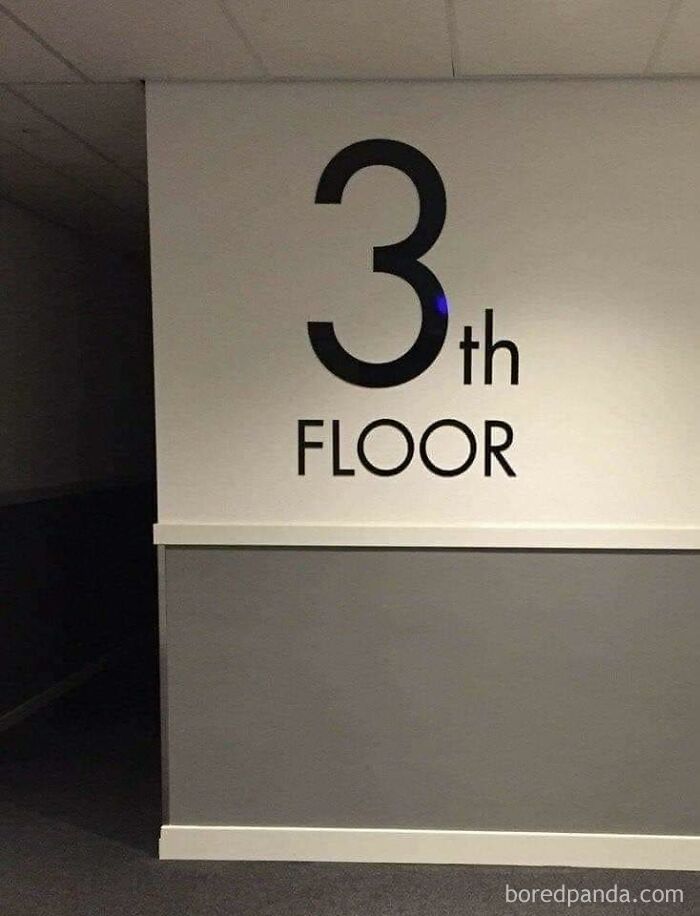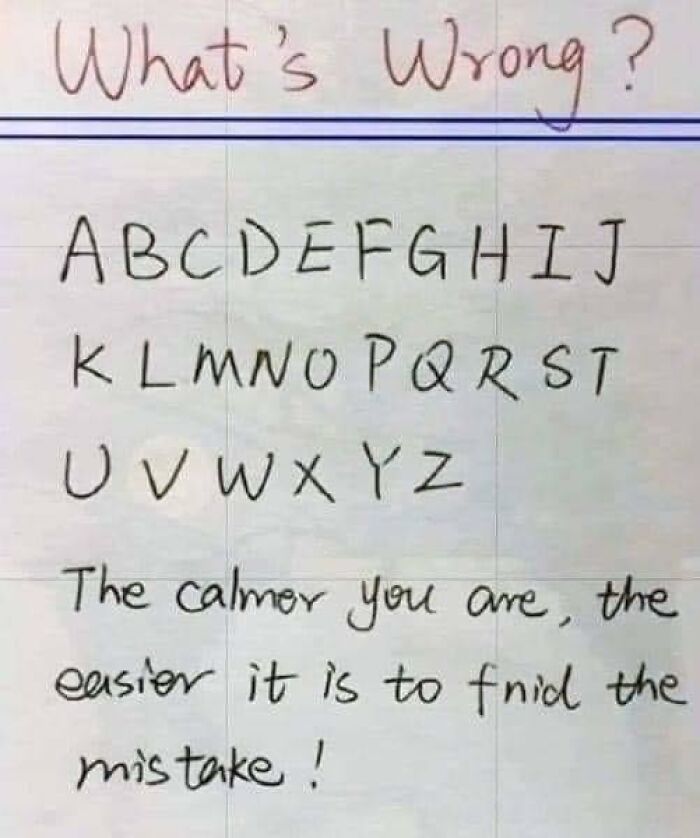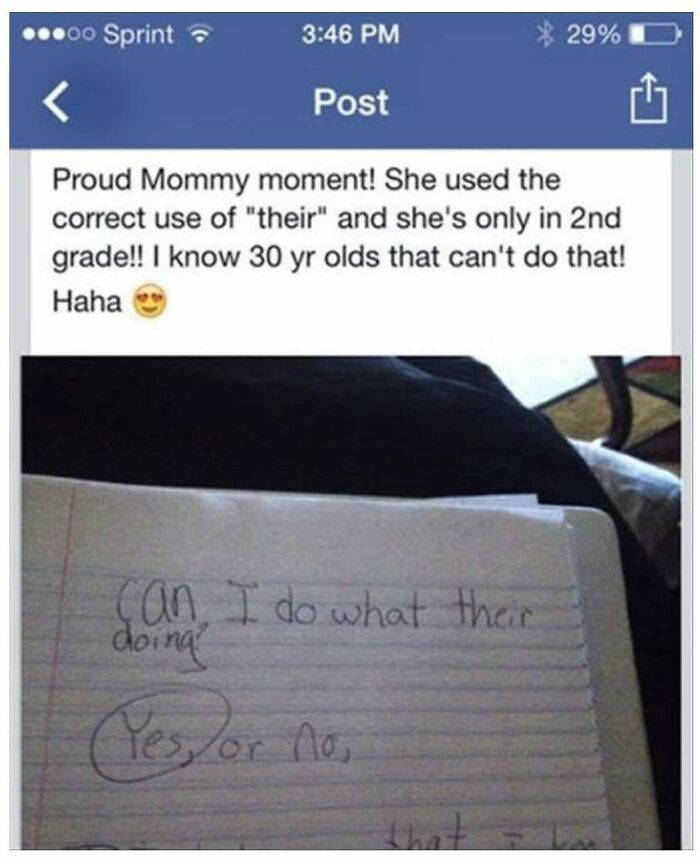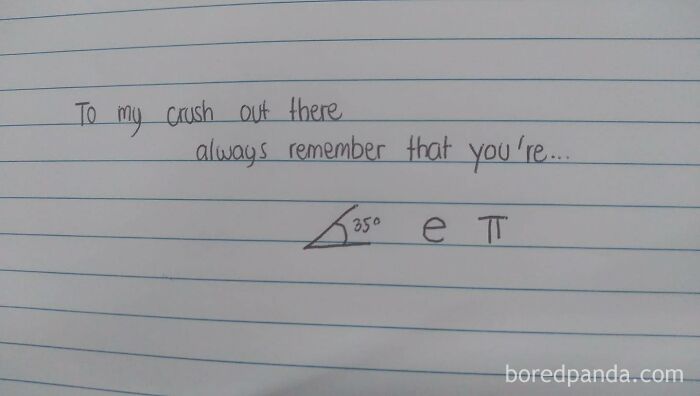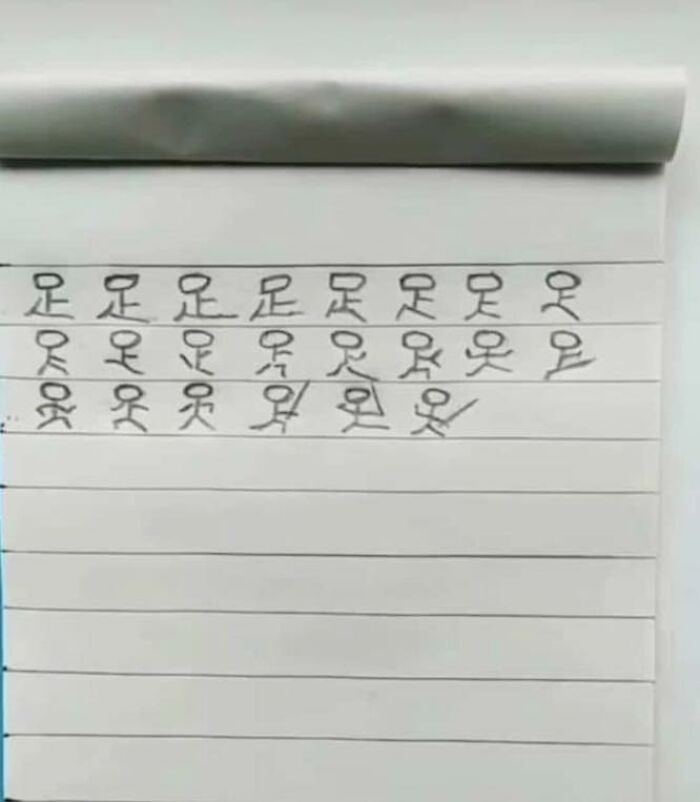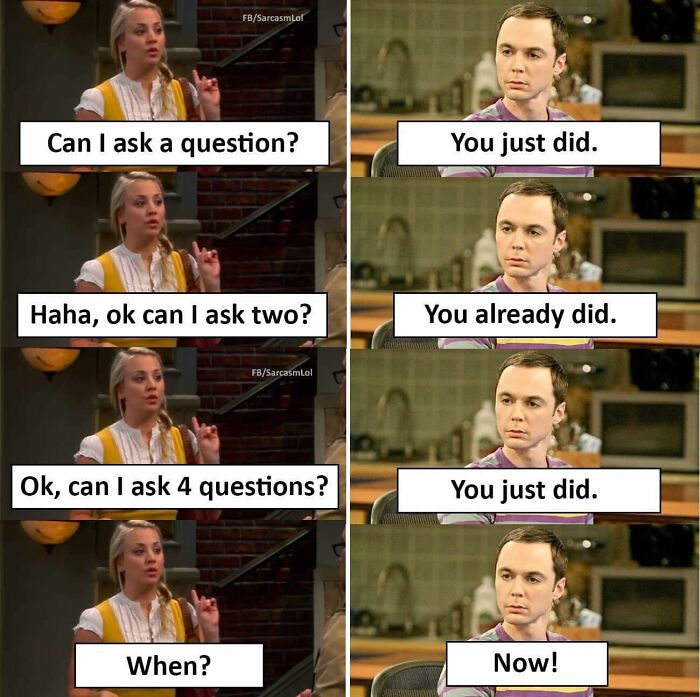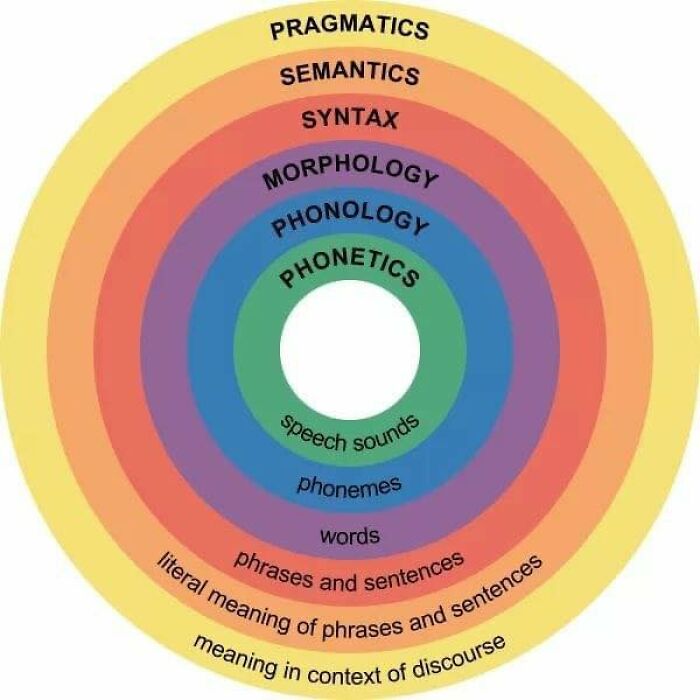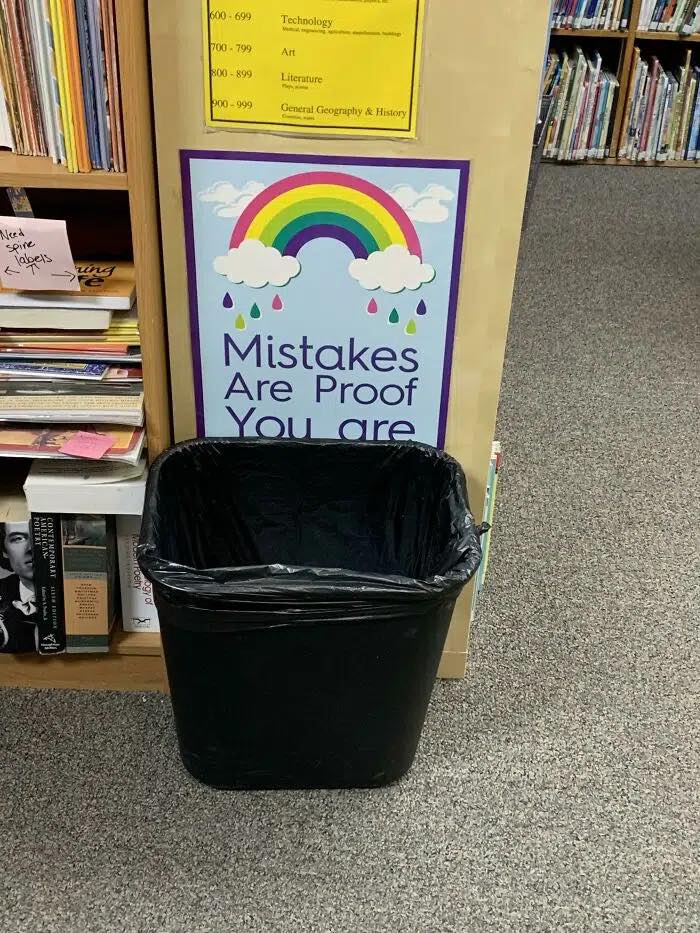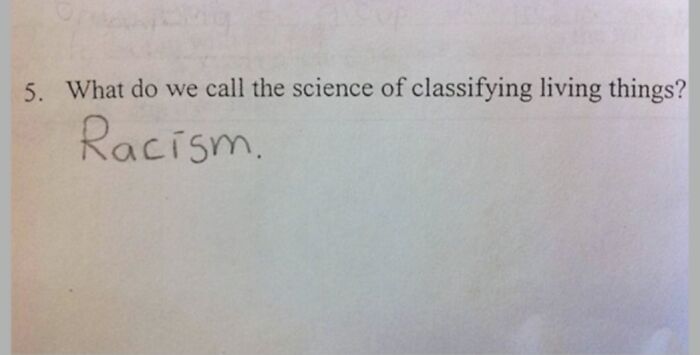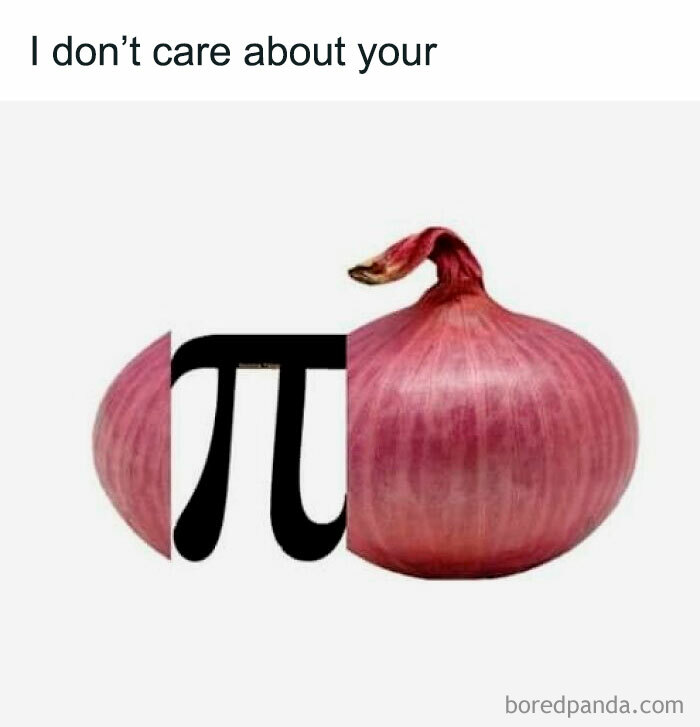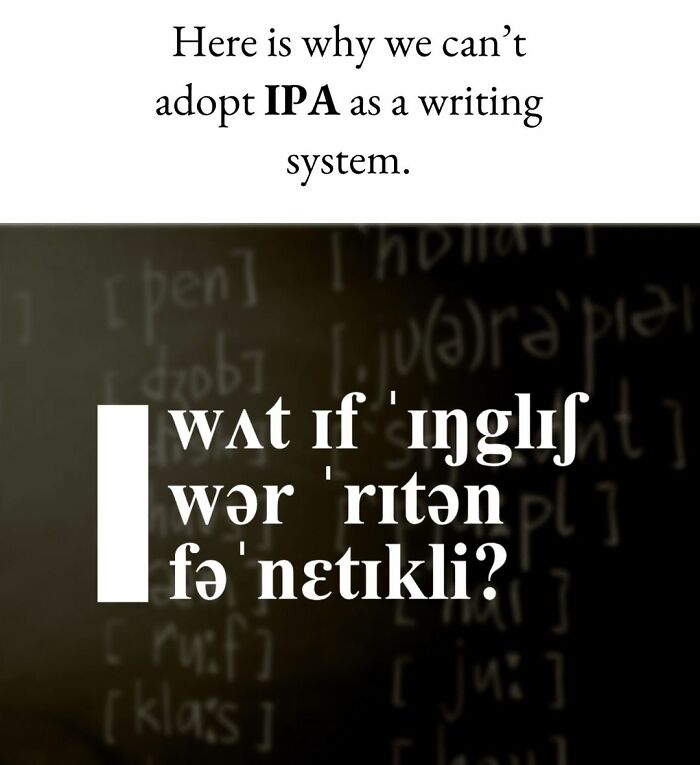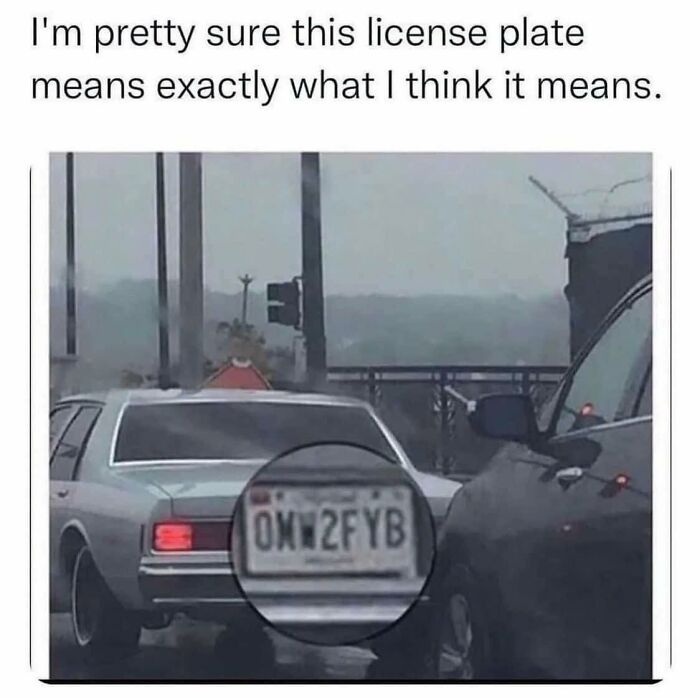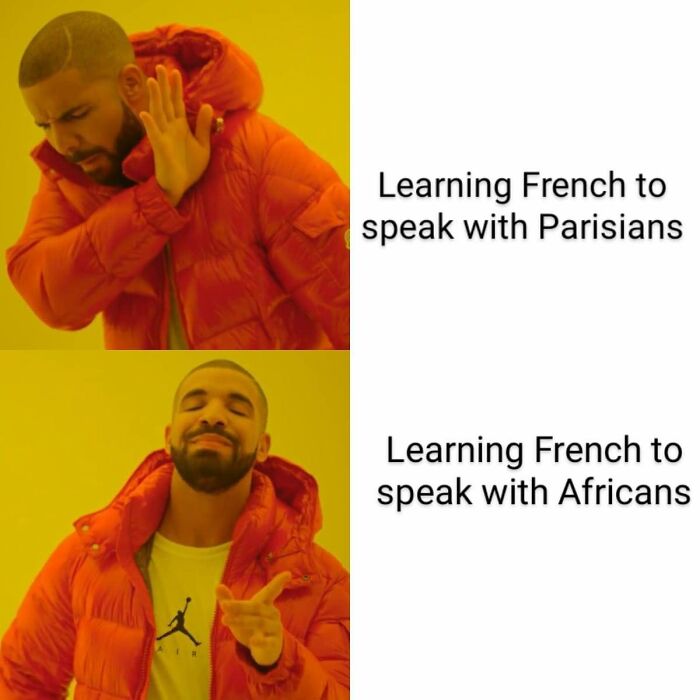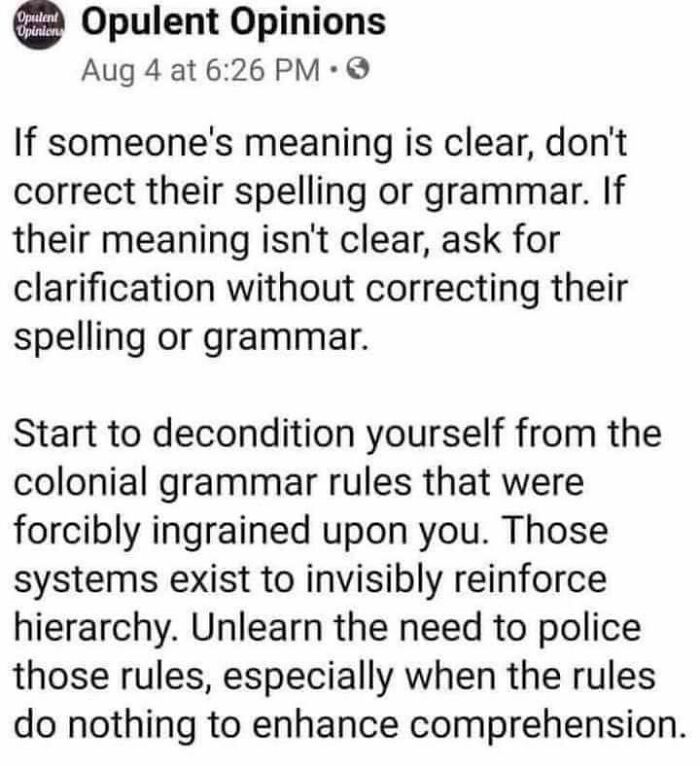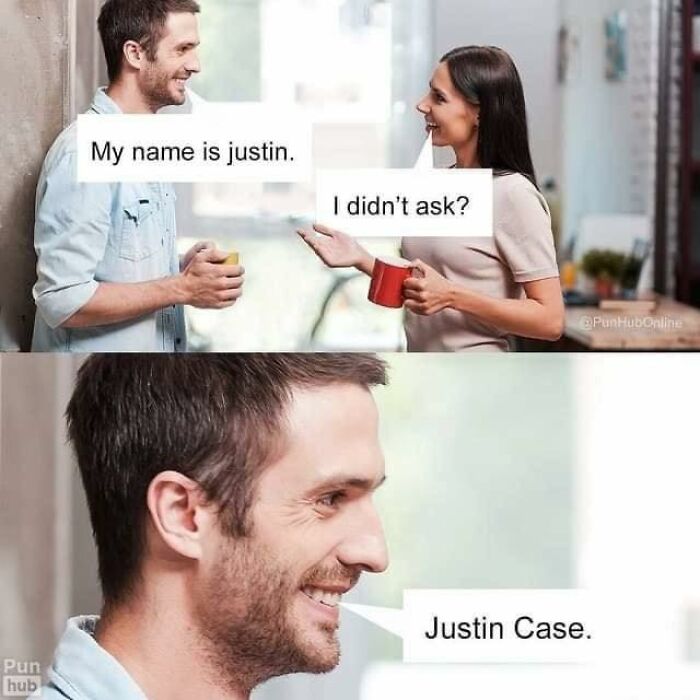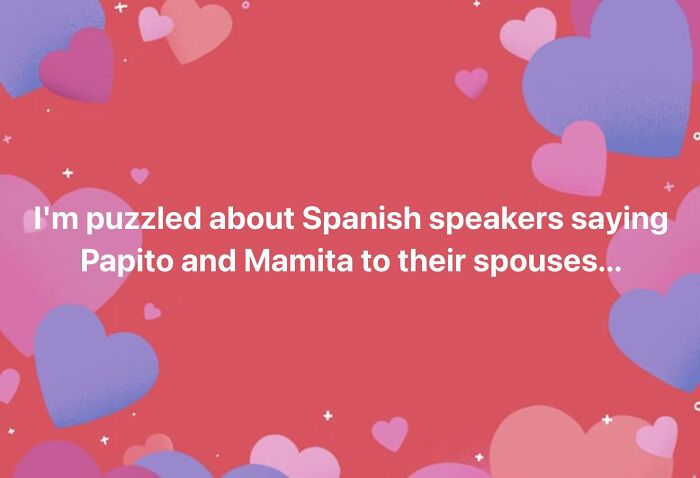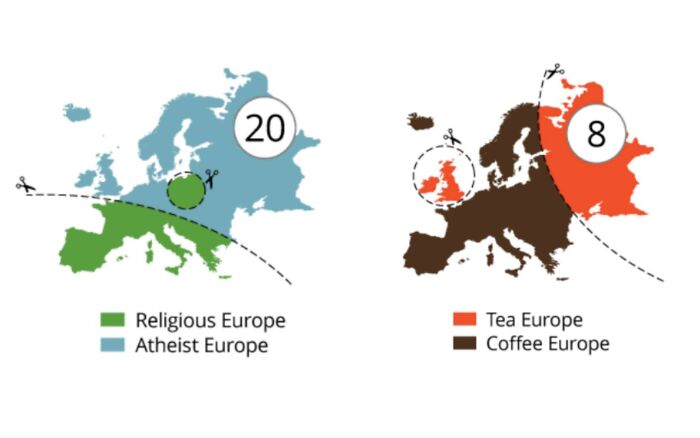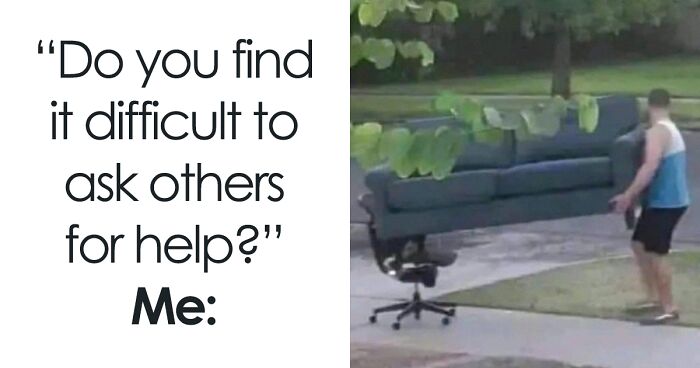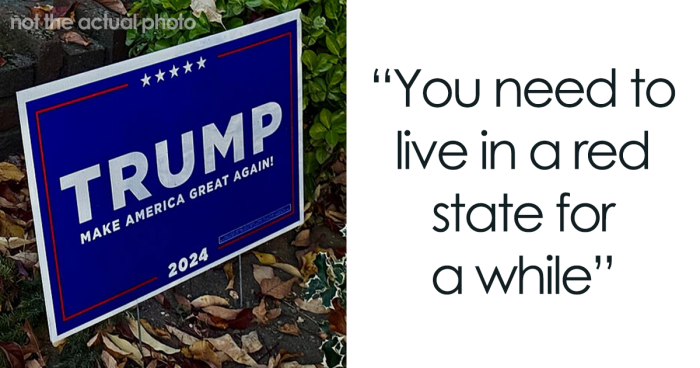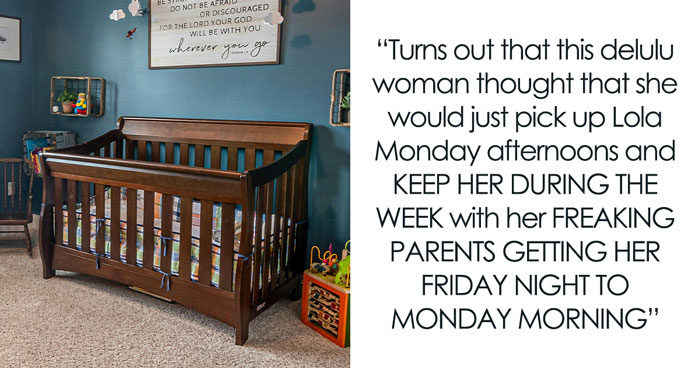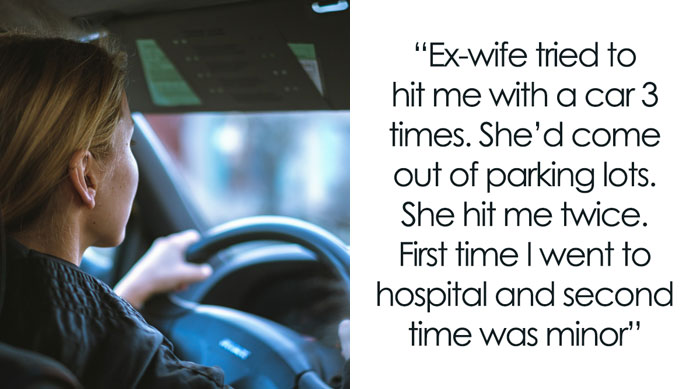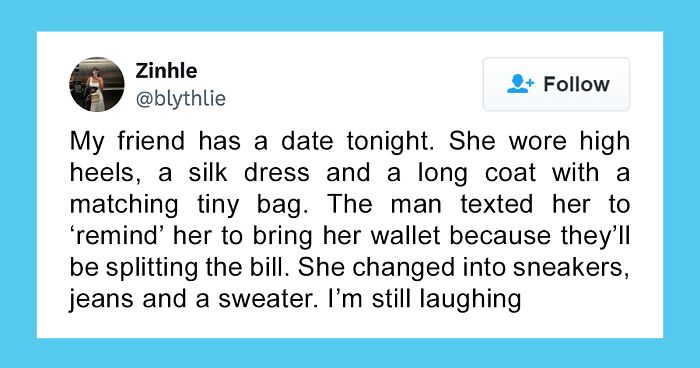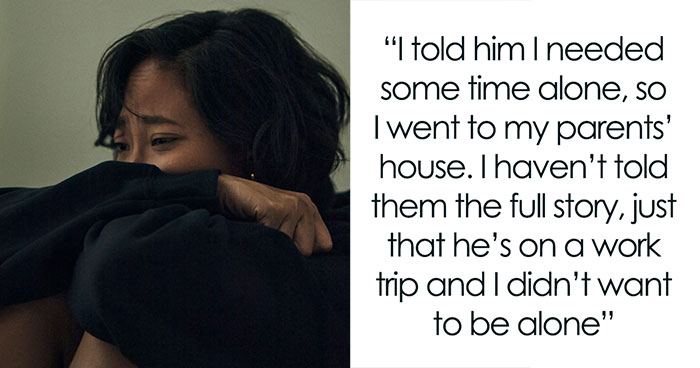Oh, the intricacies of a language. Even seemingly easy words require a lot of brain power and we don’t even realize when this complex process is happening behind the scenes. It takes just 600 milliseconds for the mind to think of one, apply grammatical rules to it, and send it to the lips.
So it is no surprise that sometimes everything results in funny mistakes. Surely, most of us have taken a park in the walk or had a cup of coppee. Freud even went so far as to say that speech errors are repressed thoughts trying to come out into the spoken world!
Today, brilliant ideas about Boroque Obama, fronteria, and irrelephants are freely circling the internet too. Luckily for us, the creators of a Facebook page, The Language Nerds, have scoured the web to find the most hilarious ones.
More info: The Language Nerds | Facebook | Instagram
This post may include affiliate links.
So what is the place of the Language Nerds? Created in August 2017, it attracted 3.1 million Facebook users by sharing stimulating language and learning content. Its mission is to keep language enthusiasts entertained and informed. The creator of this page even gathered a community that is not only polyglottic but also witty.
Their daily posts include language learning tips, humorous mistakes, unusual language constructions, interesting facts, and creative ideas from fellow language enthusiasts. Whether you’re an expert in languages or just starting, The Language Nerds has something for everyone.
I do that too when using English. If I can, I usually look it up in a dictionary to make sure I use them correctly. ^^;;
Load More Replies...That's just normal learning to speak, surely? Many of us would be hard pressed to give a succinct definition for words we commonly use. What I did find from reading a lot was I'd suddenly go to use a word, realise I had only ever seen it written down, and cross my fingers I was pronouncing it correctly. Chagrin comes to mind.
yeah same I know many many words but can't define most for the life of me.
Load More Replies...I don't think this is referring to "normal words", but more like when my friend was studying for the GRE (and he IS a native English speaker) and didn't know any of the most difficult vocabulary. He quizzed me, and I knew the connotation and context of 49/50, but if you asked me to spit out a dictionary definition...maybe not. But I could use those in the correct situation, and have the correct feeling. Personally, I find that much more useful...because that's what you need to use the words.
Same with pronunciation. I was about 10 when I came across the hyperbole in a book and sounded it out phonetically - as you do, and still now, several decades later, I have to pause to say it correctly in my head before I say it🤦🏻♀️
Did the same with Idiot. Which made me feel like one
Load More Replies...After the first week of uni I brought a huge dictionary and made flash cards because academic language is complicated 😅
Yeah. Although I do google the definitions to be sure after I saw a magazine referring to “gratuitous butt shots” and I thought “gratuitous” meant “tacky”.
First thoughts: "gratuitous" means makes the butt look good no matter what the butt looks like when naked
Load More Replies...Try having a kid ask you what a word means that you can only define using that same word.
I say words without even being able to explain the definition and yet i know entirely what im saying
I was asked what "obligated" means and imlike "its one of those words that you know but dont know ya know"
Yes! This! I always cringe when someone asks me the meaning of a word and I don’t know how to define it but I know what it means
I can't quite recall which, but I think there was a US President who had some very quirky pronunciation because he didn't receive an elite education. He gained his knowledge from reading books, not talking to peers- hence he could deploy complex words easily, but didn't necessarily know how to pronounce them in the way those in 'high society' would.
I read books on my Kindle. You can highlight a word and the definition will pop up.
Yep. For me it's because I read a lot when I was quite little. I know when to use an uncommon word based on context cues, and usually whether it's got a positive or negative connotation, but couldn't define it on the spot and often don't know how it's pronounced as I'd only encountered it in writing.
Yes and then in university I made a solid effort to look up definitions of these words, to increase my understanding. Try it sometime! Dictionary.com
Yes,; I experience this on a daily basis. Usually, it will be prompted by my use of a word that someone else isn't familiar with, followed by s/he asking me what it means. I try my best to define and/or explain said usage.
People talking a lot of BS and don't even know what they're saying. Anyone else experience that?
Was ridiculed by first grade nun for pronouncing "have" with a long "a". I knew phonetics.
I thought that was just me, I can't always explain the meaning of a word but I can show/tell you how it's used in a sentence. Also I feel bad when someone asks me to check something like an email and I can't help myself correcting spelling. It's not being a smarta*s I swear. As a skimming reader they don't get that to me it's the equivalent to skiing smoothly downhill and suddenly meeting a bit of bare ground.
Yup. Also there are a lot of words I know how to use but not how to pronounce because I've never heard them spoken.
My trouble comes when I try to use a word in a sentence that I've only ever read before. No idea how to pronounce it. I'd read the word "laicization" [when a member of the clergy loses their clerical status] and tried to ask a family friend & former minister about it. Only...what came out of my mouth was "lactated." Sigh.
I have the issue where i read them differently than they are pronounced, sometimes to the point where i don't recognize it when i hear it... i'm talking to you indictable
Yes, there's also the issue of how to pronounce these words out loud. I'm looking at you apothecary.
Often, very often... lol lol my mom never spoke baby talk to us. Even before we could read. Once we learned to read she would write the word then tell us to look it up. I got ridiculed at school by normal kids
Not me, reminds me of when I was a kid and used the R word around an adult and they asked if I even knew what that meant. I didn't and I was embarrassed. Well, from that day on, I made sure to know the meaning of words I choose to use.
I didn’t know this happened to other people! Like, I’ll use a word, and my sister will ask me what it means, and I won’t have a clue how to describe it
My mom completely roasted me for the use of macabre in elementary school. I used it correctly in the sentence but didn't know how to pronounce it since I'd only read it to that point. I learned real quick how macabre is pronounced
No. And I don't think this is a result of reading a lot. It's just you. If you "just know" that a word is correct, and can't articulate why, then there's an elevated chance that it's not.
Bored Panda reached out to Yaccine, the creator of The Language Nerds, to ask some questions about his page. First, we wanted to know what was the inspiration behind the creation of this linguistic Facebook page.
Yaccine shared with us: “I created The Language Nerds to tell people what they didn't know about language. The fact that we use language so much disguises a lot about its intricate workings and what a marvel it is.
The Language Nerds is there to tell people why they shouldn't take the puffs of air that come from their mouth when they try to comminute, i.e. language, for granted because that might be key to understanding who we are as a species.
Language might be the window to the human mind and that was the inspiration that fueled my interest to pursue a degree in Linguistics, and hence The Language Nerds.”
"43% of the world's population is bilingual, according to Journal of Neurolinguistics, meaning almost half of all people utilise two languages daily. 40% of the world's population is monolingual, using just one language. 17% of the world's population is multilingual, or fluent in two or more languages."
IMO that's a strange question. Duolingo has a monetisation formula just like any number of other websites. Even though it isn't something I would do, as a bit of a geek myself, I can fully understand why someone who is a fan of either franchise might want to learn either of these languages, and a number of other ones. For some it would simply be a hobby, a pass time, or to others a homage to their favourite show and a way to connect with others of the same persuasion/mentality.
Asked to describe his background and experience in linguistics, the creator answered: “I am a doctorate student in linguistics. I speak English, Arabic, and French. I've taught English to non-english speakers and taught Arabic to American university students. I've tutored University students in Linguistics subjects such as syntax, phonology, sociolinguistics, etc. I've been a proud recipient of the Fulbright scholarship which significantly broadened my cultural awareness and perspective. I also took part in the Erasmus+ project in Europe.”
We were curious to know how the creator of this page stays on top of language trends and how they are incorporated into his content strategy. Yaccine told us that “Finding content for The Language Nerds is no easy task and I guess that's the case for all creators. I managed to make our content broad and to touch every language aspect, such as humor, facts, research, and general know-how. This way we should have plenty of room to find the right content that our audience will engage and relate with. We can basically write about anything language-related. And since I'm a language researcher and my entire career revolves around language, staying up to date with language trends comes naturally to me.”
Talking about the biggest challenges Yaccine has faced in managing his Facebook page, he mentioned that keeping such a big community engaged is not an easy task. “Also, The Language Nerds is not just a Facebook page, It's also an Instagram account that amounts to 2.2M followers, and a website. Keeping this varied presence running is very challenging. I also have challenges monetizing the content. But in the absence of challenges, I don't think The Language Nerds would have grown this big. Because with every challenge that we overcome, we set a milestone for our online presence.”
One probably shouldn't use a chainsaw under water, eggs or no eggs.
The future for “The Language Nerds” looks very bright as Yaccine shares with us that he sees this page growing and becoming more diverse. “We have a very creative audience that is hungry for new content and we expect to reach a lot more people in the future given our current trends. We are thinking of starting a TikTok account and a YouTube channel. We have great video ideas and I think they will complement what we already do.”
I laughed. Now Audi's awake. Someone sing him a lullaby, quickly!
Indeed, language is rich with opportunities for humor; quirky rhymes, puns, and multiple-meaning words provide plenty of witty material.
Puns as a humor-creating tool have been around for ages. You can even find them hiding in the pages of Shakespeare’s Romeo and Juliet. They’re practically everywhere, from posts on Facebook to business campaigns. The enjoyment of puns is built upon ambiguity (in sound or word form) and the combination of two things that should not exist in the same place. Apparently, not everything needs to be necessarily true or straightforward, and that’s the beauty of it.
Interestingly, children start learning such language incongruities at an early age. They become aware of homonyms around ages three to four, and once they are able to create stories they can use it for humor i.e., creating puns that manage to amuse and confuse at the same time.
Learning through exciting methods always brings better results, and social media is one of them. Language-related content on social networks helps language learners to quicken their learning by being current and self-controlled. Even on those days when you're not in the mood for learning, social media unnoticeably supplies you with educational content. Most likely, you learned something after stopping scrolling to see a meme in your foreign language.
Having the ability to speak more than one language comes with its own challenges. Bilingual individuals often make amusing and sometimes endearing mistakes when switching between their two languages. They may accidentally mix the two, which results in sentences like “Vamos to have lunch” (blending English and Spanish) or “Je suis Camille and you?” (blending English and French).
Sometimes, two words can look or sound similar but have completely different meanings. The sneaky-looking “préservatif“ in French means “condom,” and in Spanish “embarazada” sounds too much like “embarrassed” but actually means “pregnant”. If you use one of these incorrectly, you’ll find yourself in an uncomfortable situation.
Memes are becoming part of everyday speech. They are a language in themselves, and meme makers and sharers participate in it to bond through humor and wordplay. They’re actively shared because people want to engage in the creative, nonliteral, playful language of everyday conversation. For instance, take the linguistic meme “cries in American'' or “laughs in Italian” which evolved into a reaction to certain situations and conveys far more complex information than its form might suggest
I can't say that I have ever been inside of The before. The does look remarkably like a library so maybe The is known by other names in different countries?
And for those who need a translation 8. Situational dialogue (20 points) A foreigner named Tom asks you for directions and where the toilet is. The following is your conversation. Please complete it. TOM: How can I get to the toilet You:can you speak Chinese? TOM: yes of course You: Let’s speak Chinese then TOM: Okay, no problem You: Turn right ahead and walk straight for 100 meters to reach
TBT when my mum was drinking soft drink in the passenger seat of the car and I told her she wasn’t allowed to drink and drive
These are legitimately funny for once! Thank you, Bored Panda. More stiff like this, please!
English/Creative Writing degree here. This post both delights and infuriates me simultaneously XD
Load More Replies...As a language services researcher/worker and prior translator-- I approve.
These are legitimately funny for once! Thank you, Bored Panda. More stiff like this, please!
English/Creative Writing degree here. This post both delights and infuriates me simultaneously XD
Load More Replies...As a language services researcher/worker and prior translator-- I approve.

 Dark Mode
Dark Mode 

 No fees, cancel anytime
No fees, cancel anytime 


